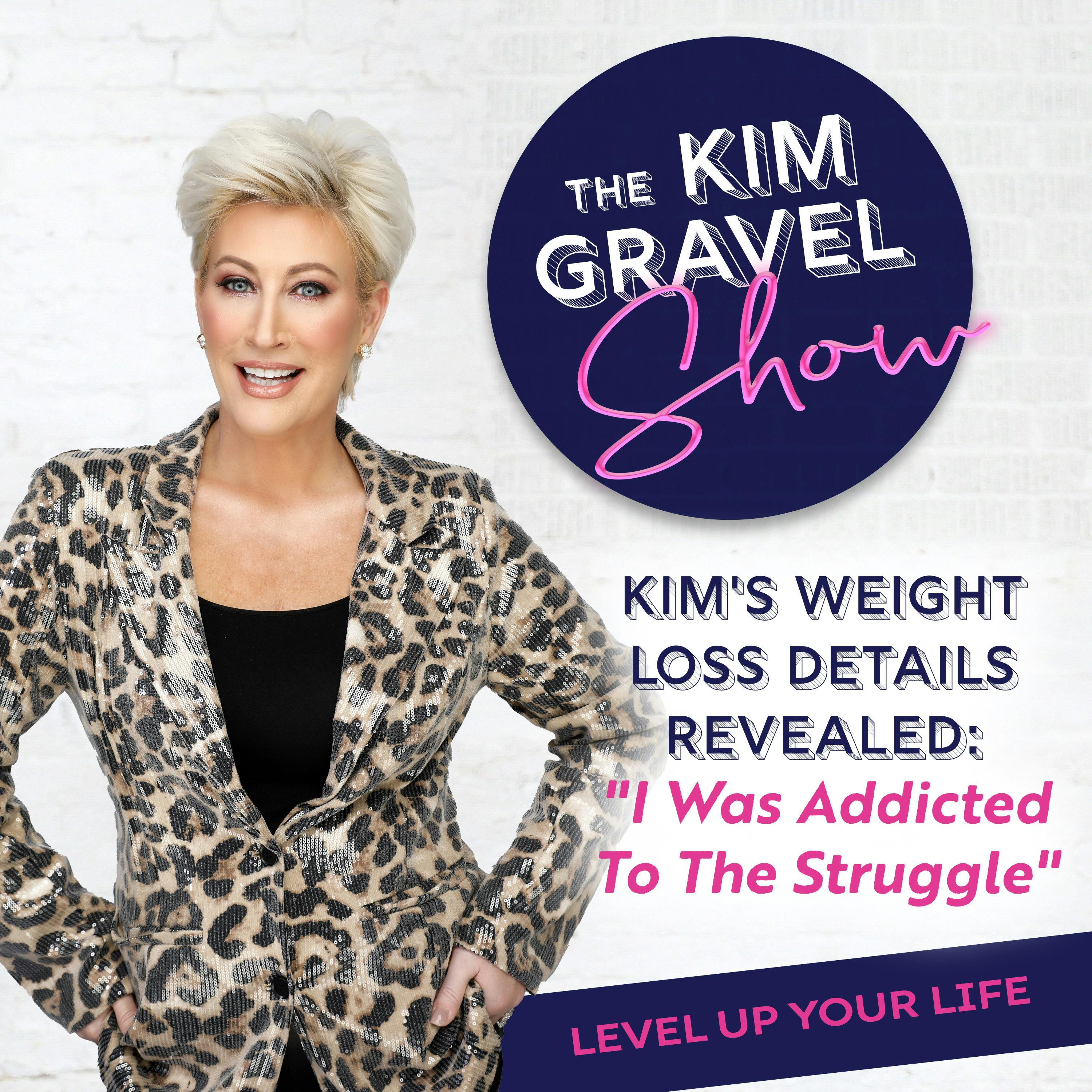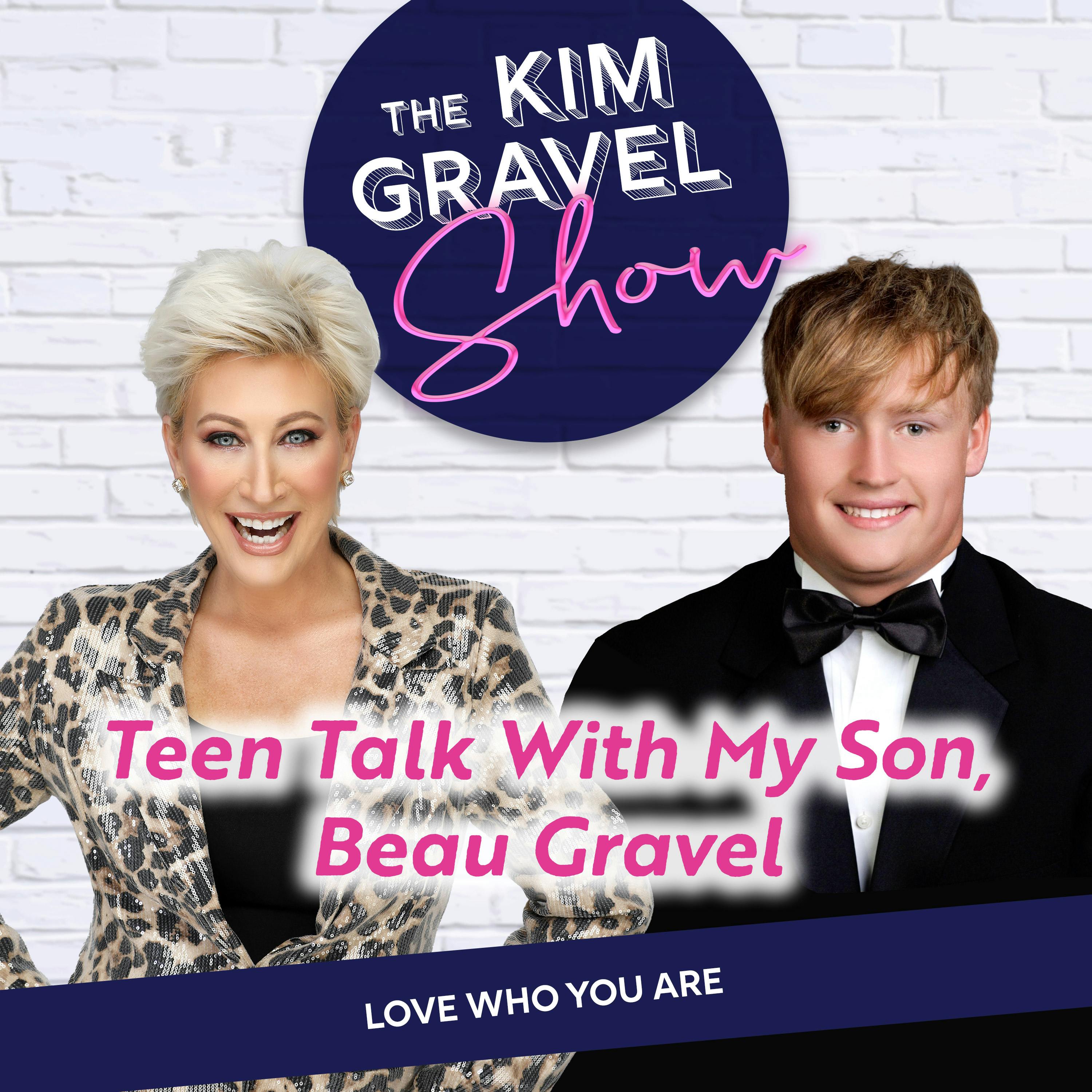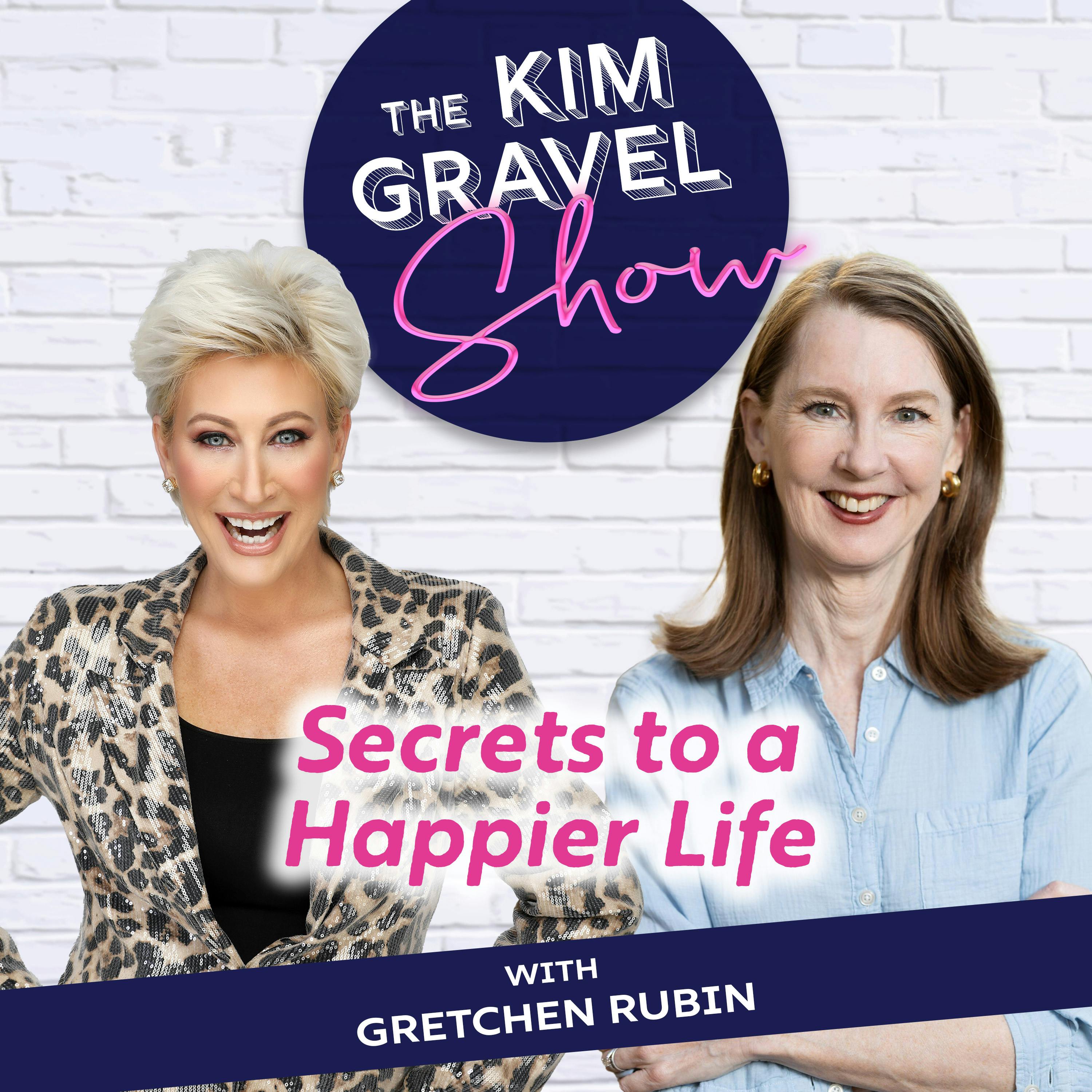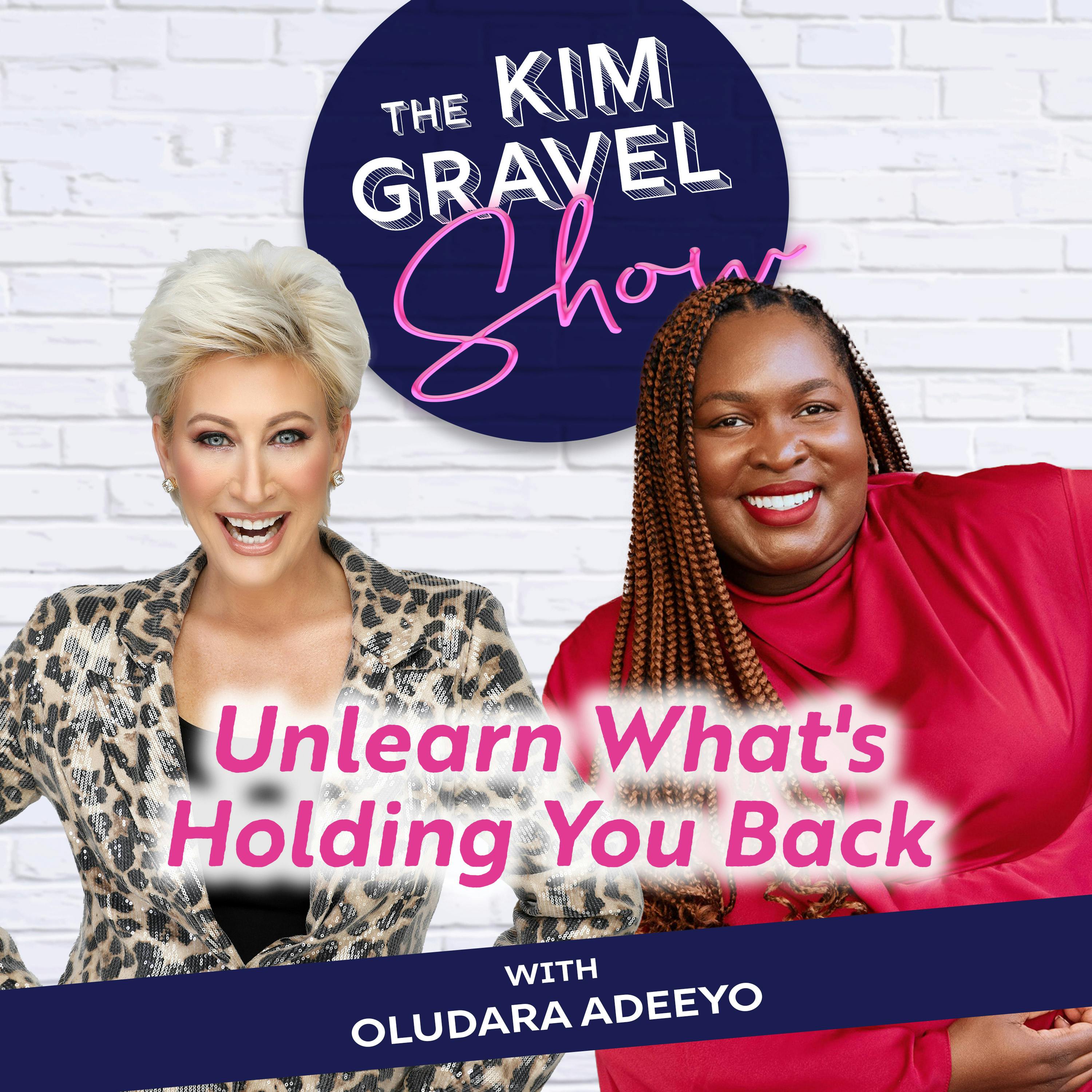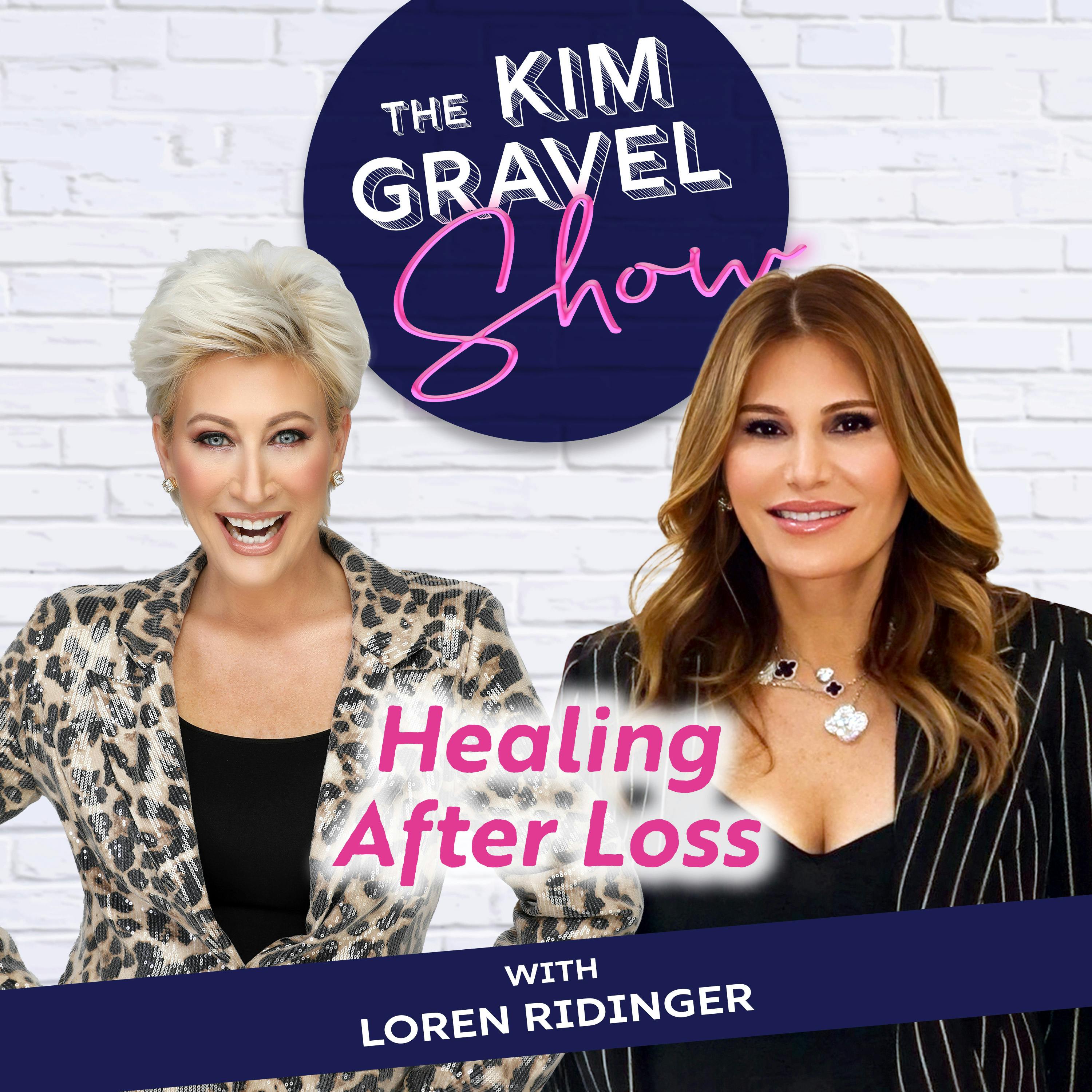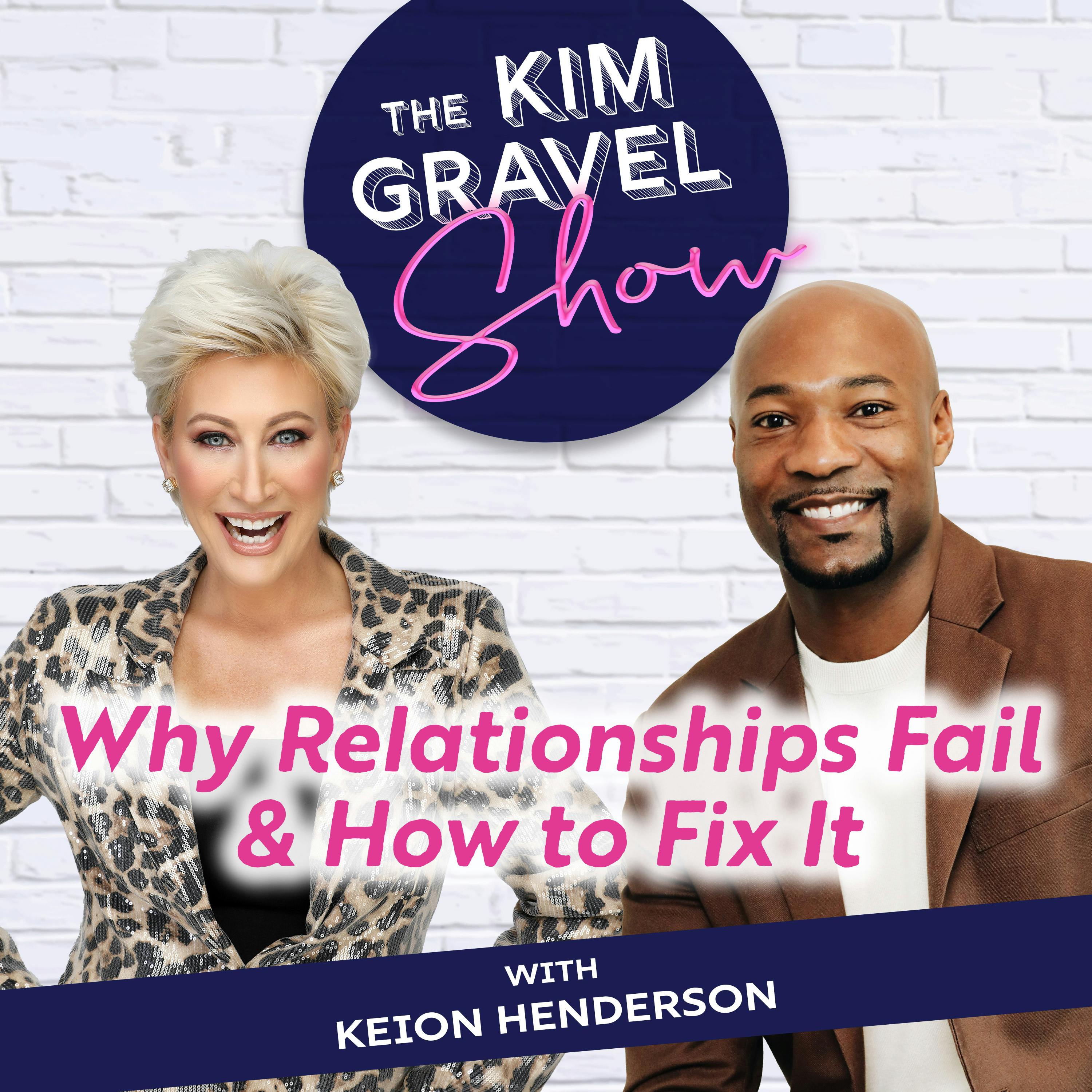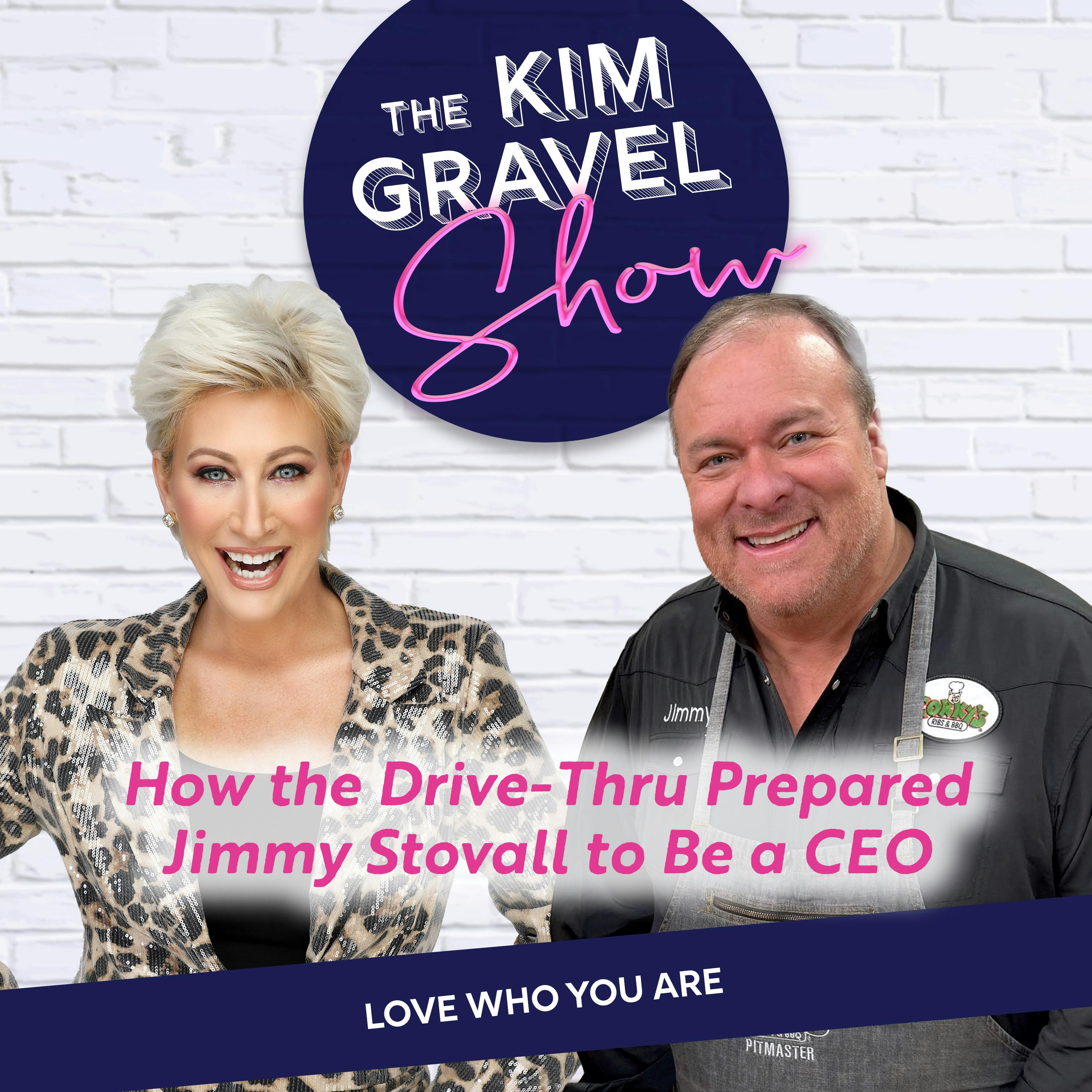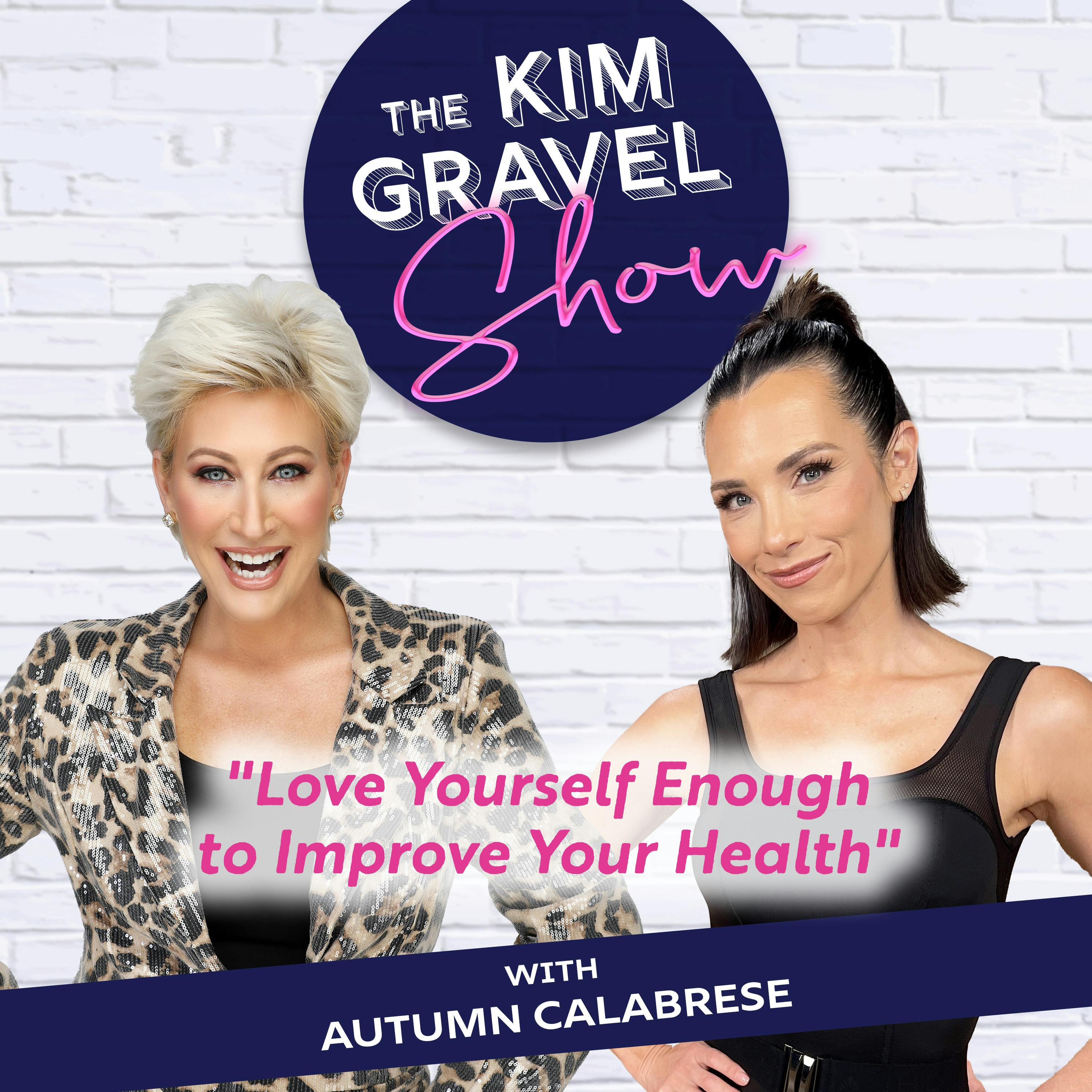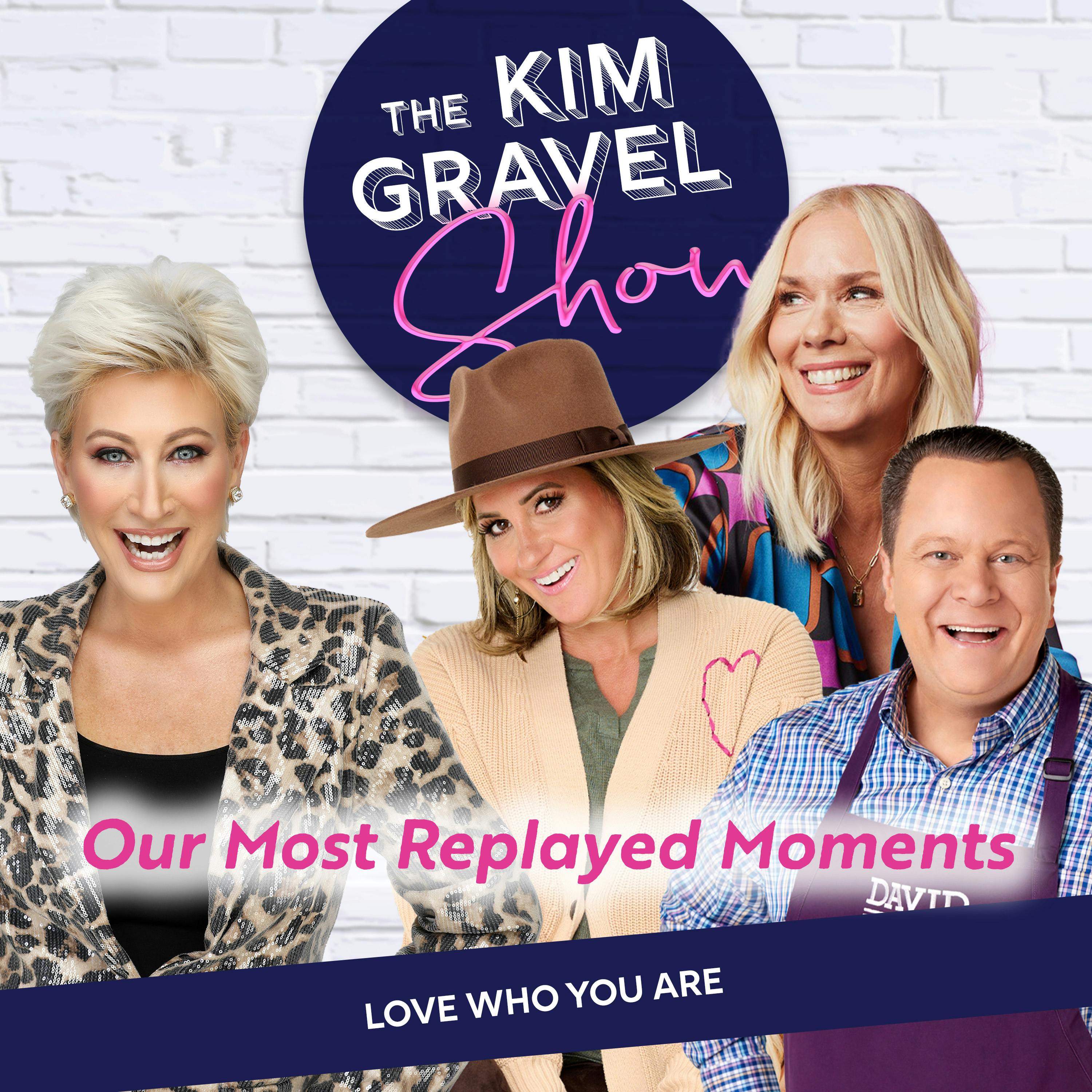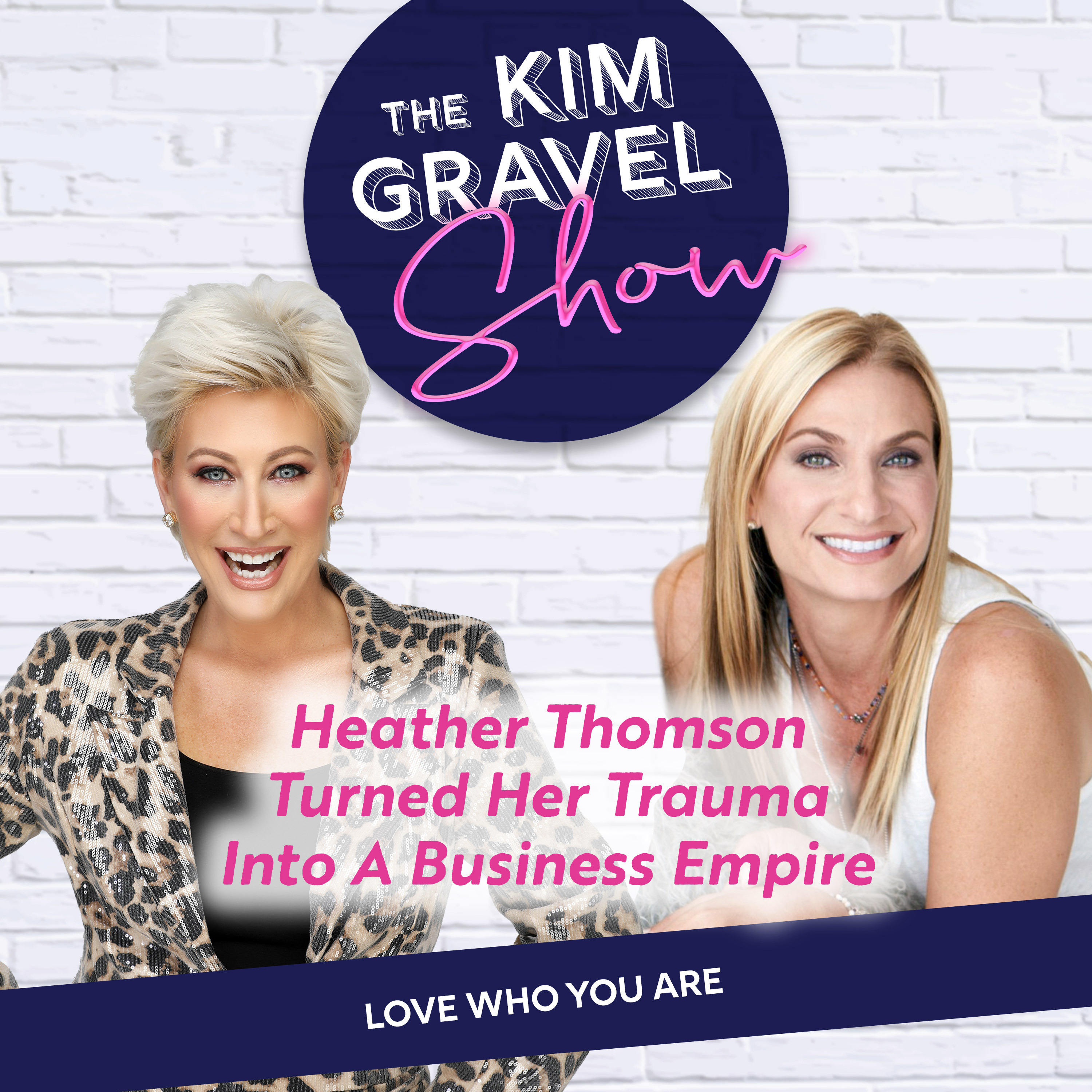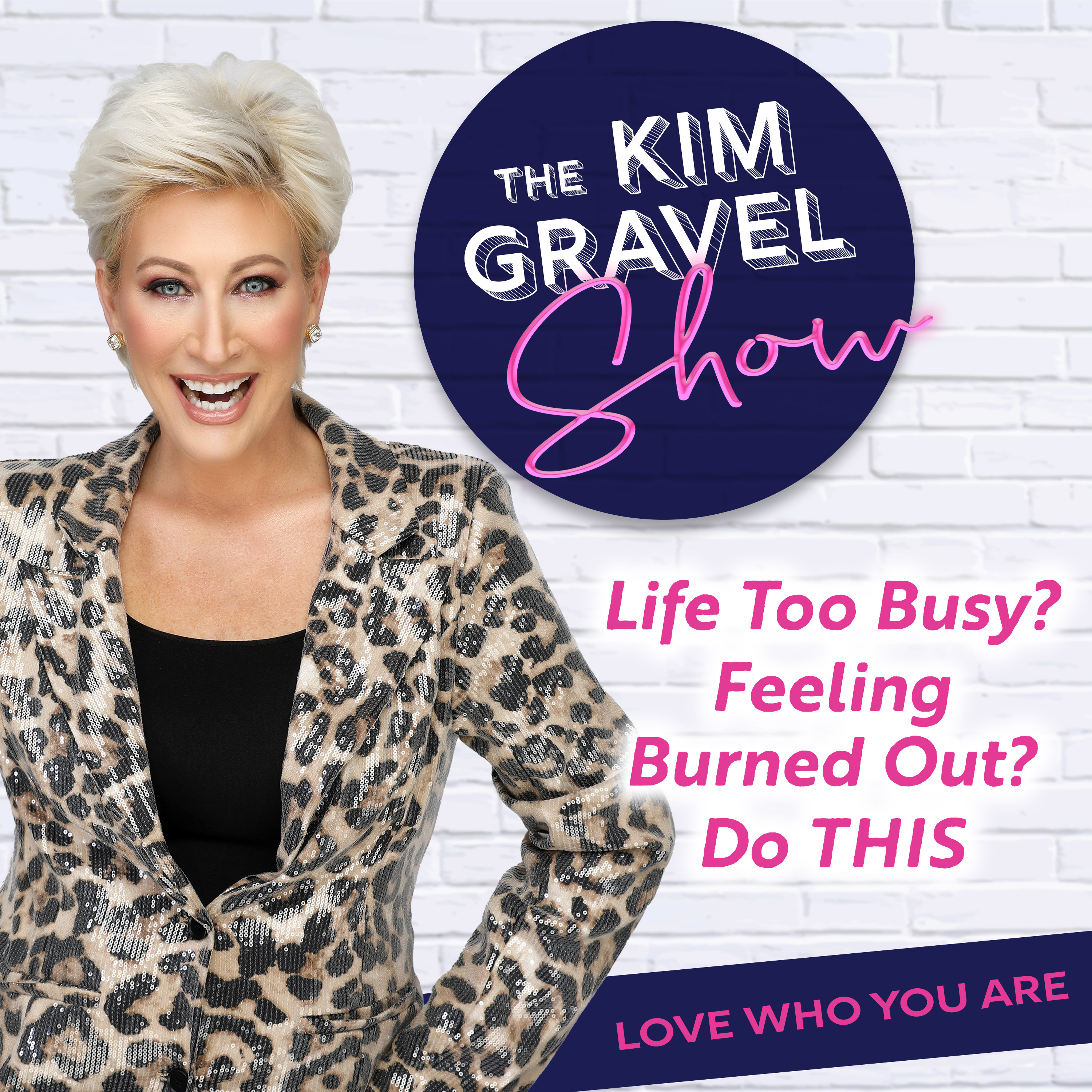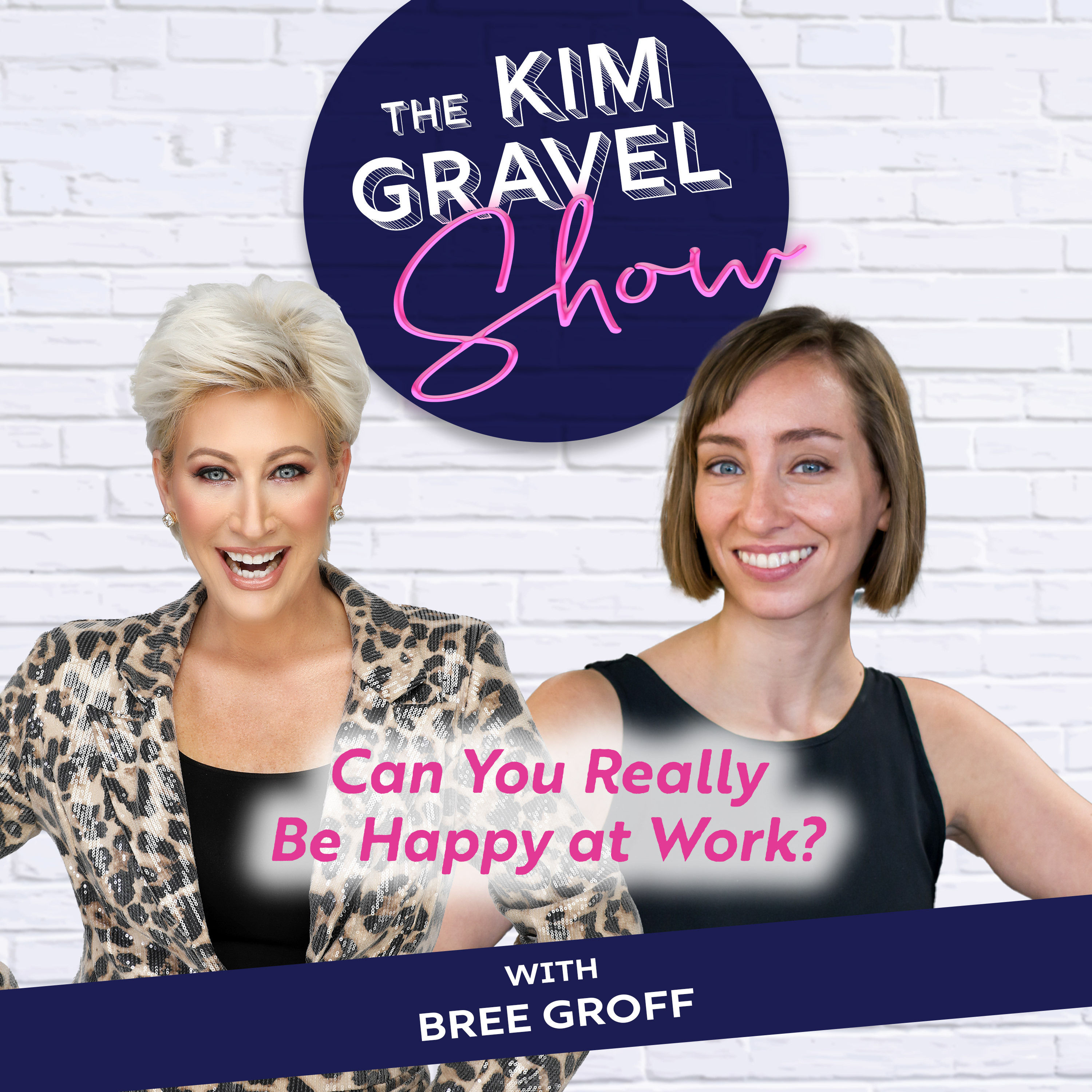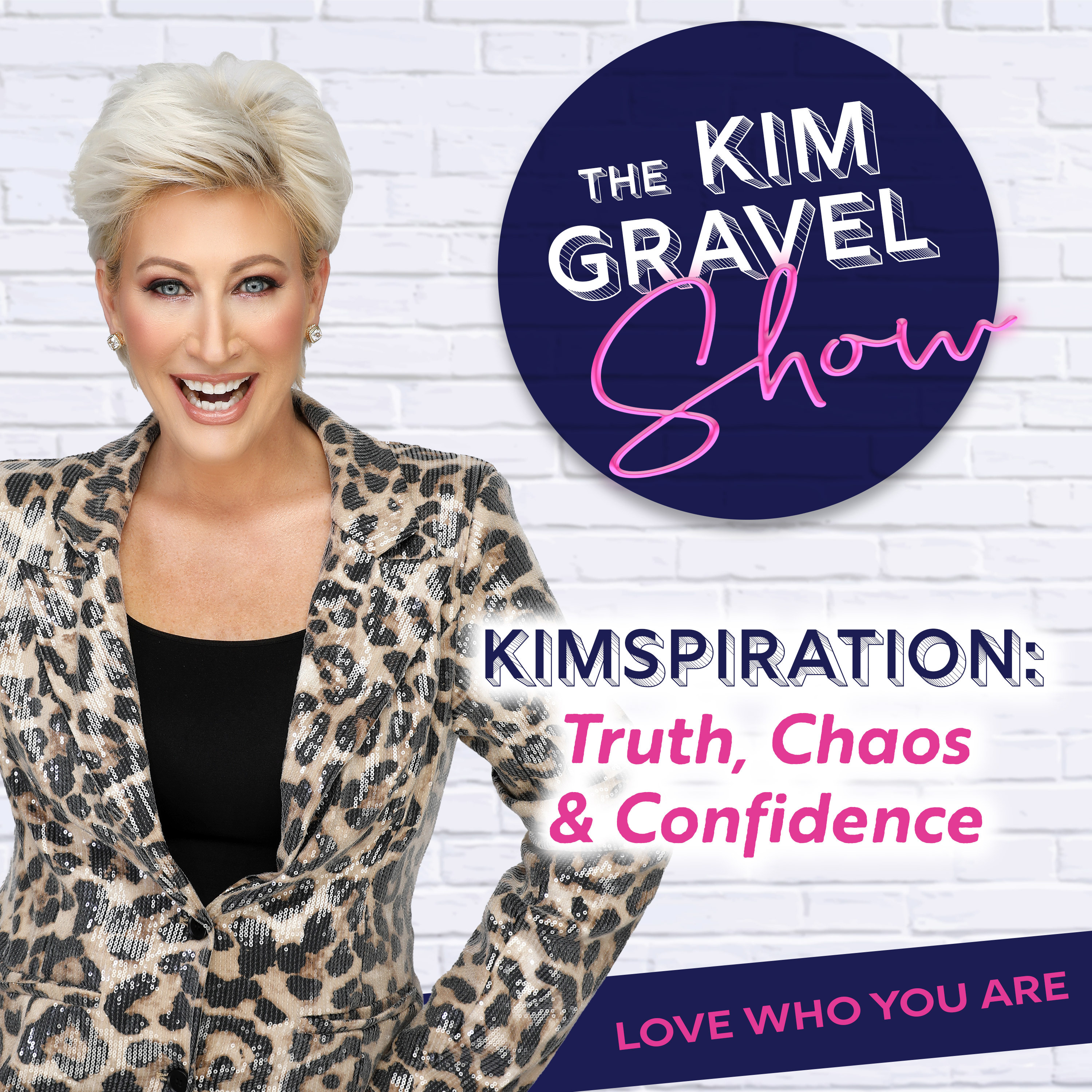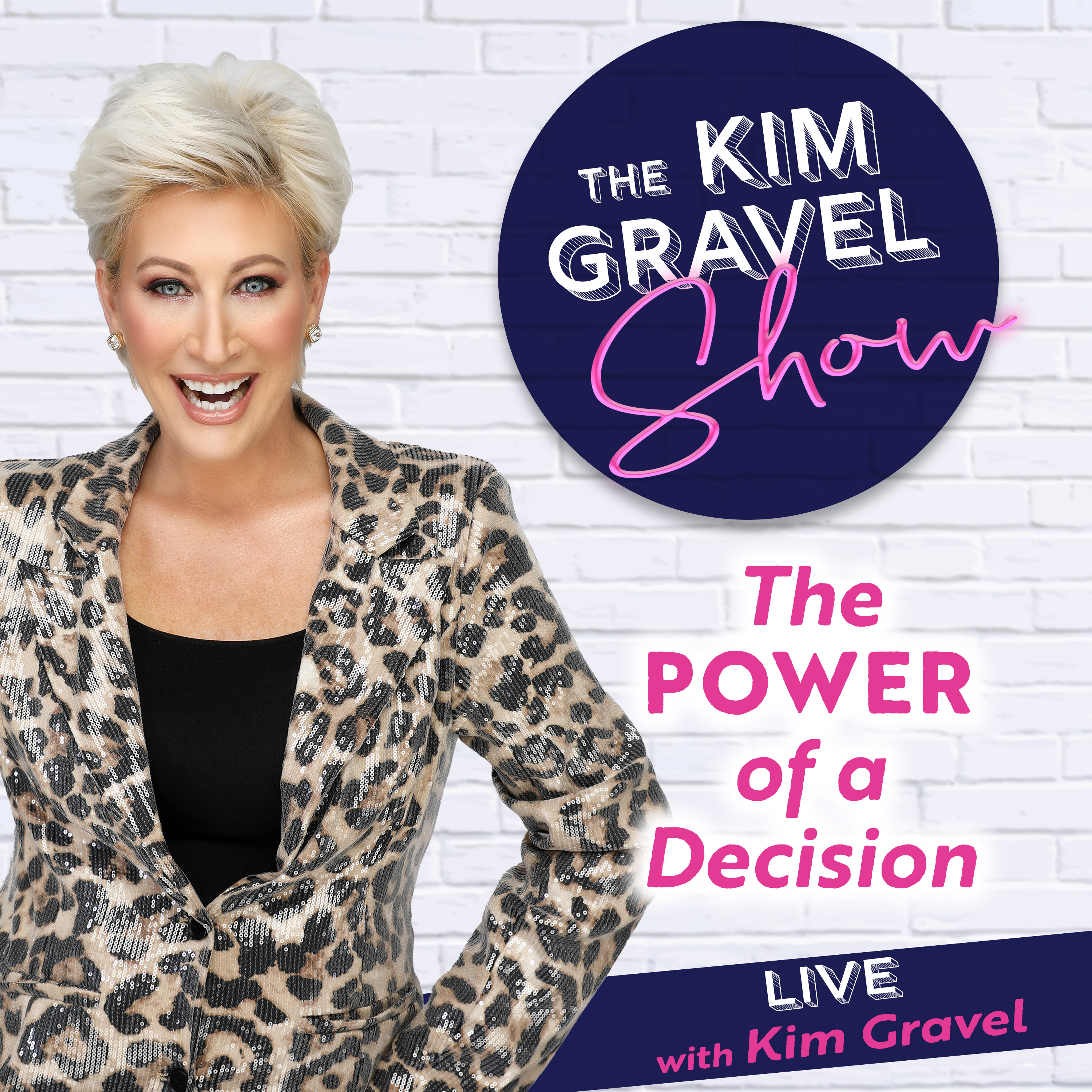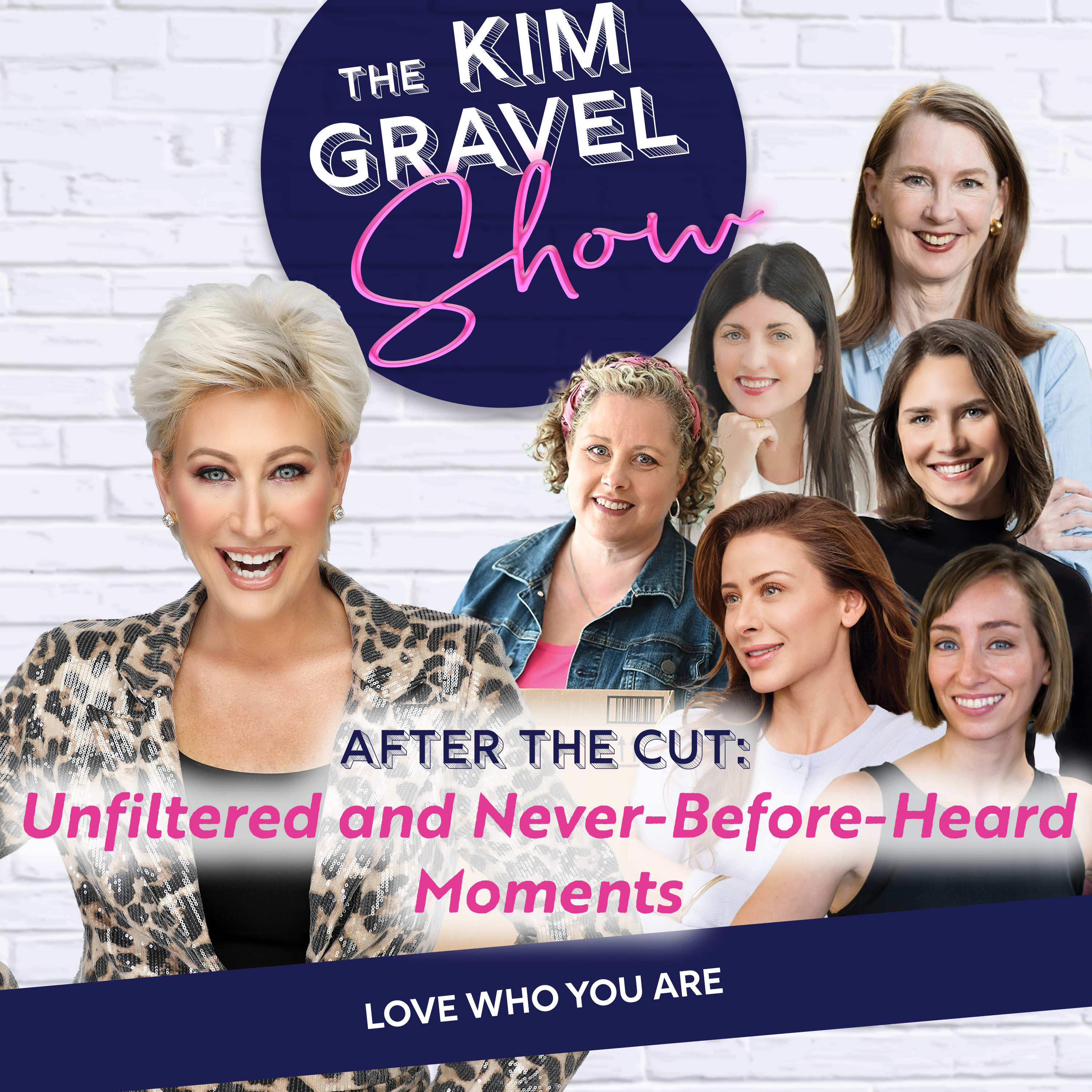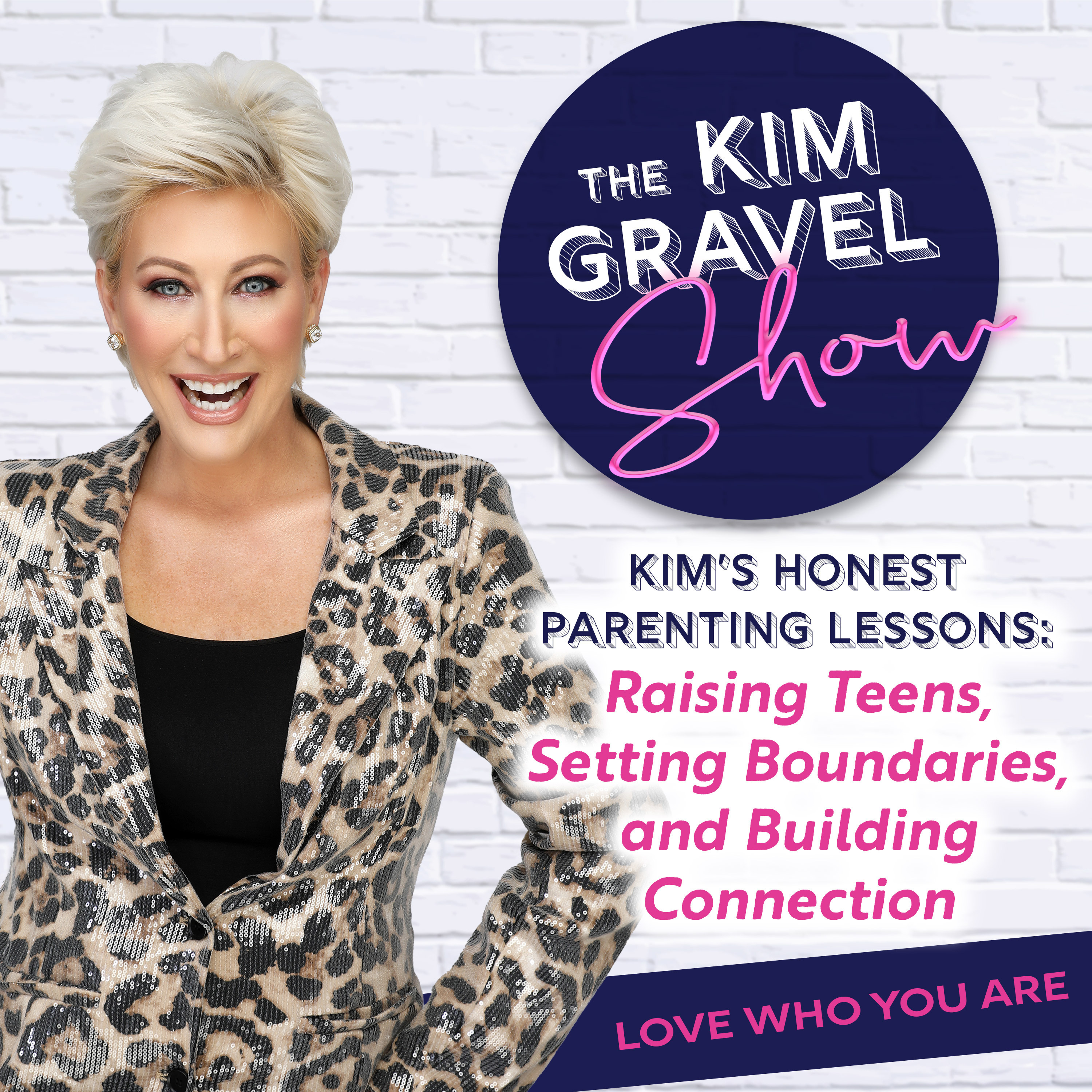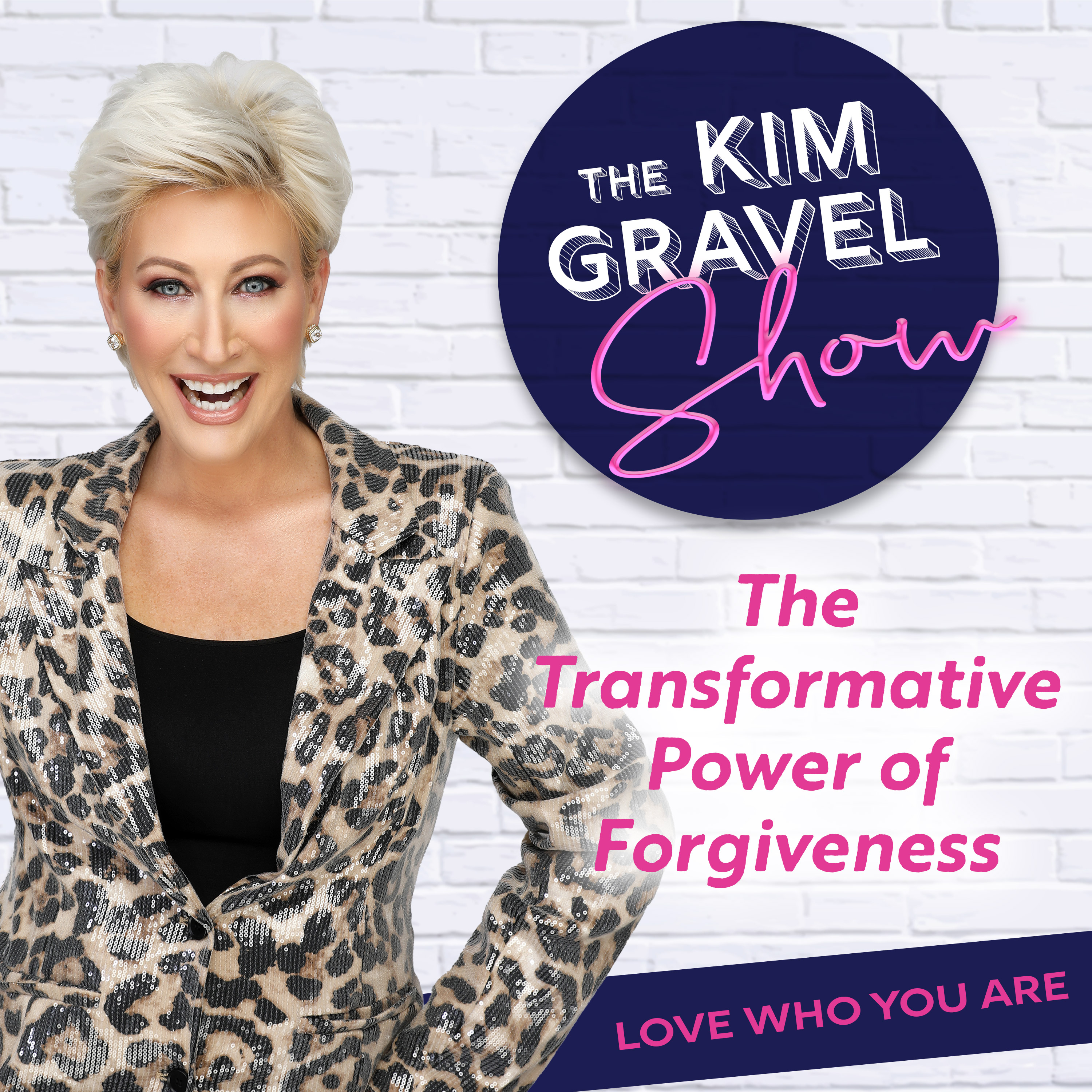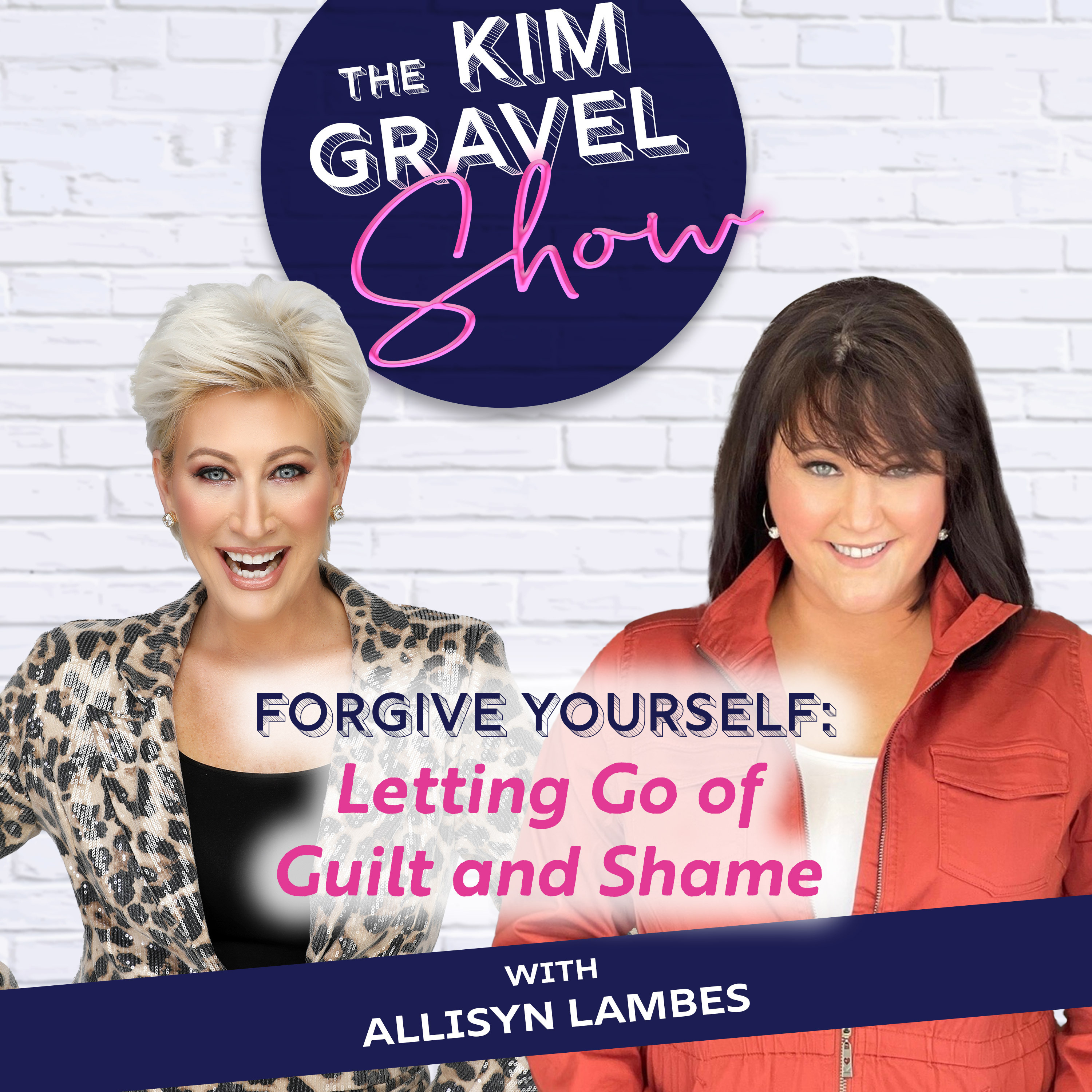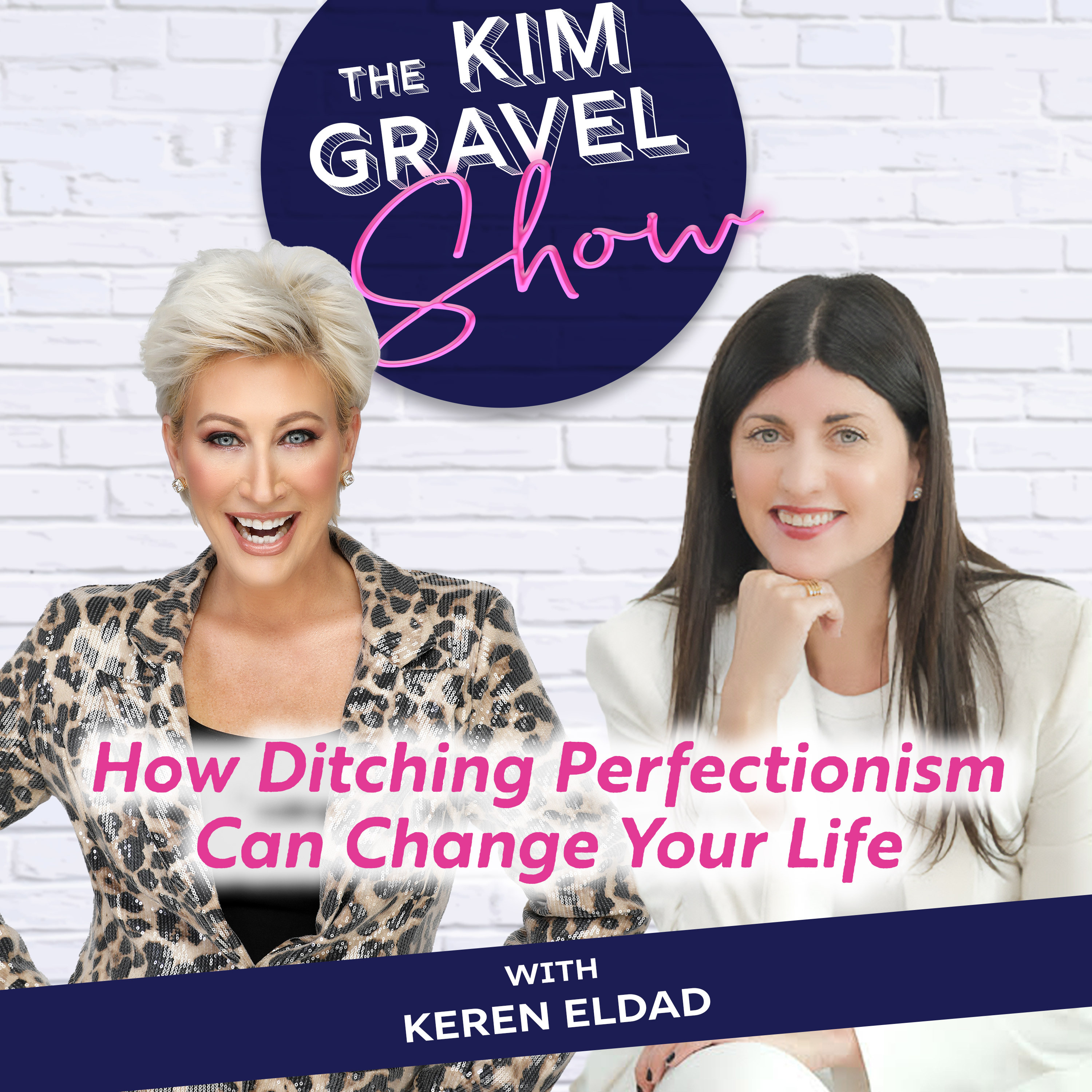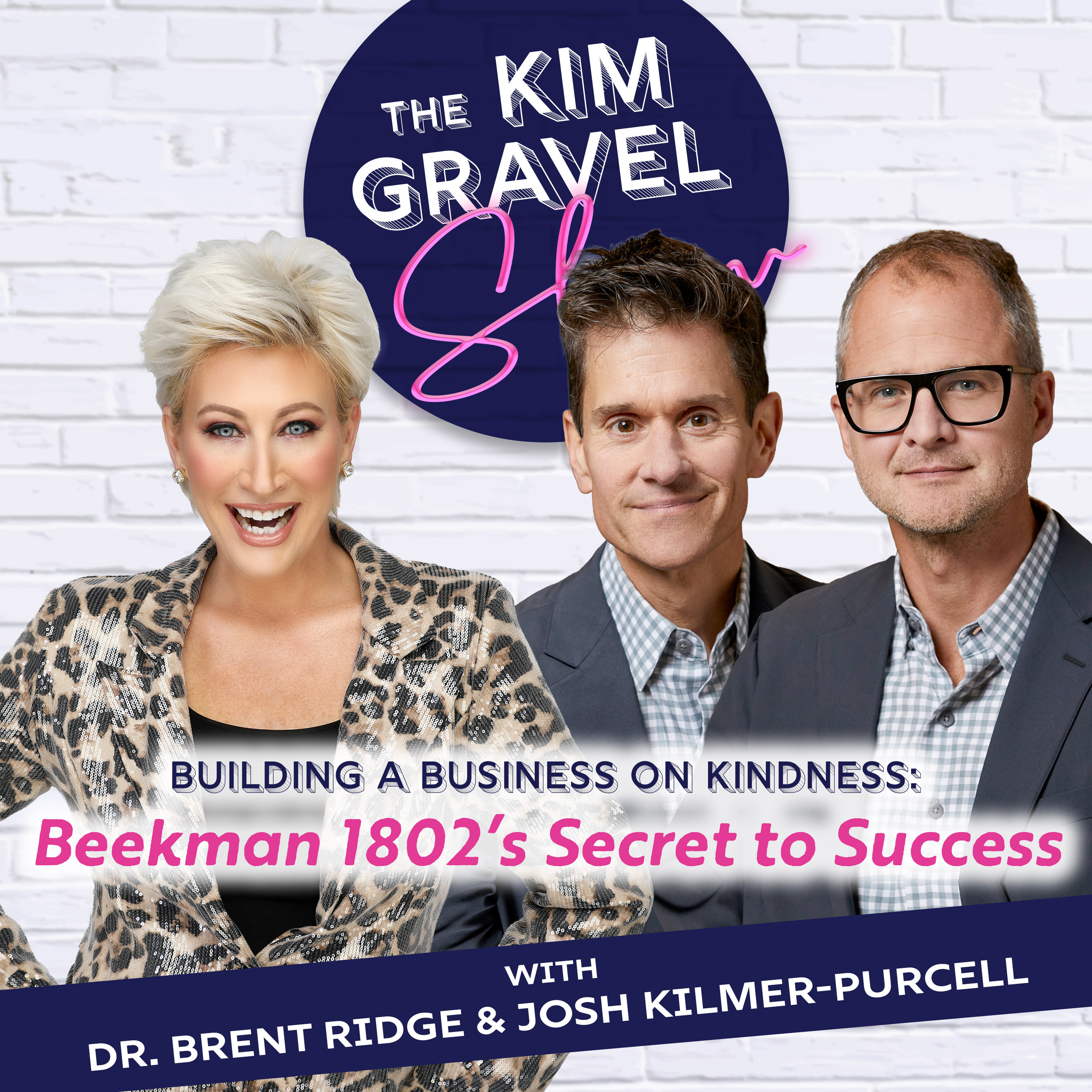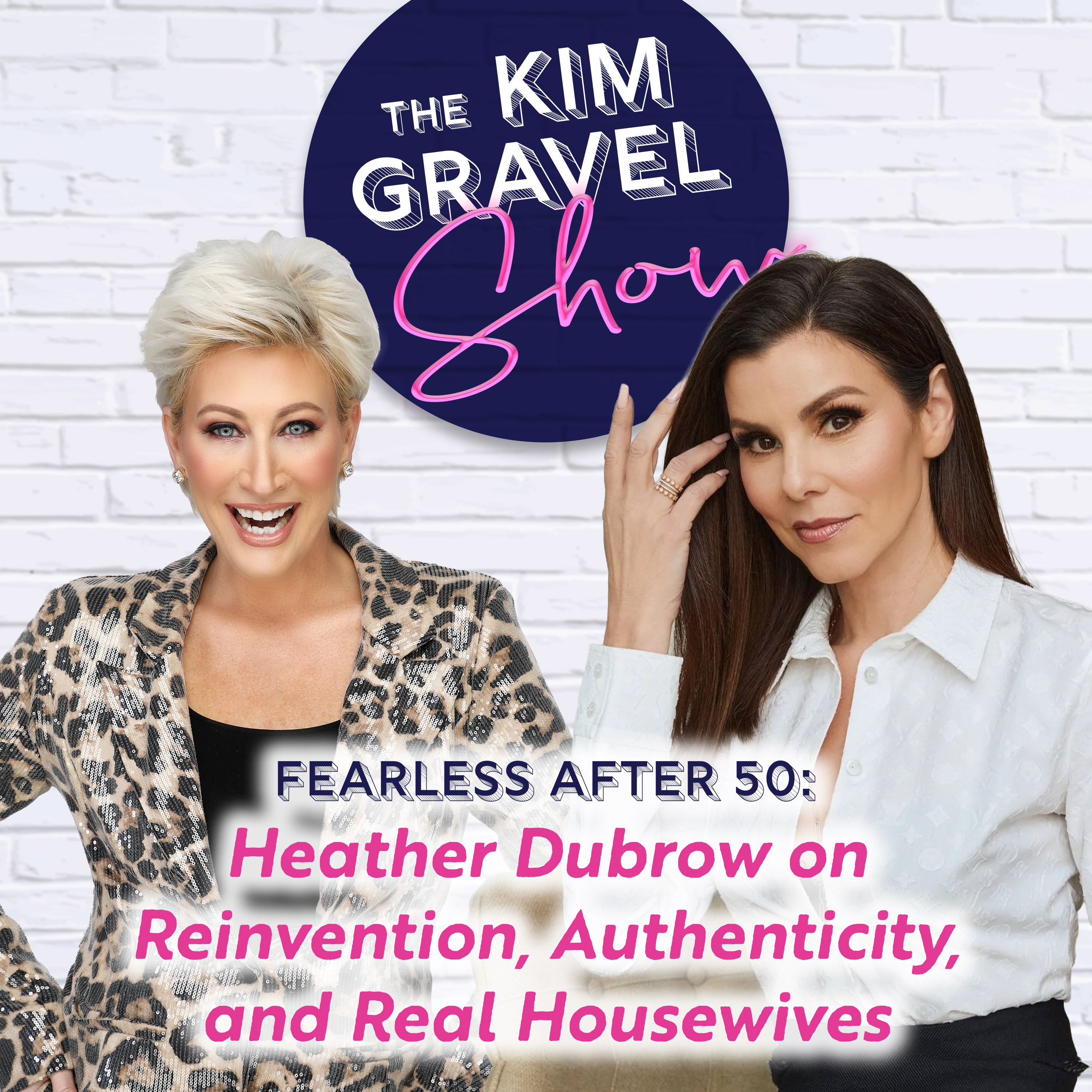The Organizing Expert on Why Your Mess Isn't the Problem with Dana K. White

Dana K. White shares her practical decluttering tips, personal journey to authenticity, and how embracing who we truly are can lead to both a cleaner home and a more freeing life.
This week, I’m so excited to have decluttering and cleaning expert Dana K. White, host of the popular podcast A Slob Comes Clean, with us to help transform home chaos into calm. Dana explains how small steps and realistic goals make decluttering easier, and she shares practical hacks—from getting your husband to be less messy to keeping your home clutter-free with small kids. Her inspiring story shows how embracing authenticity can lead to finding your true calling, and her message of grace and love goes beyond cleaning tips to offer a refreshing reminder about accepting who we truly are.
In this episode:
- Dana’s authentic journey to starting A Slob Comes Clean
- Tips for starting decluttering today
- Quick and easy cleaning hacks
- The 5-minute cleaning rule
- Explaining the container concept
- Dana’s favorite cleaning supplies
- Overcoming shame
- The connection between faith and cleanliness
Here is my favorite quote from this episode:
"Shame is not motivating. So we remove the shame by understanding who I am, who God is, and what he's looking for from me.” - Dana K. White
Have you tried my exclusive ZERO sugar candy yet?
Kimmie's Candies Sea Salt Caramels are the perfect gift that’s both indulgent and guilt-free. Rich, chocolatey caramel with a touch of sea salt—zero sugar, keto-friendly, and gluten-free. A delicious, guilt-free indulgence for valentines day.
Order now at kimgravelshow.com/candy.
Supply is low so get yours before they sell out.
Do you want to hear your voice on the show?
Call me and leave me a voicemail at 404-913-6460 and let me know why you love who you are!
There is BONUS CONTENT in our free newsletter so make sure to subscribe at https://www.kimgravelshow.com
Collecting Confidence, my best-selling book is now available in paperback with a brand new discussion guide!
Click this link to buy it now.
Join my Love Who You Are movement at https://lwya.com
Connect with Me:
Connect with Dana K. White:
Book: Jesus Doesn't Care About Your Messy House: He Cares About Your Heart
New episodes of The Kim Gravel Show drop every Wednesday at 6pm EST.
Support our show by supporting our Sponsors:
Branch Basics
I switched to Branch Basics to keep our home clean and safe for the whole family. Their plant-based Concentrate handles everything—laundry, counters, and even produce—without any harmful chemicals. Going toxin-free has never been easier. Ready to make the change? Start fresh with Branch Basics today!
Get 15% off Branch Basics with the code KIM at https://branchbasics.com/KIM
#branchbasicspod
Factor
Stay energized with America’s #1 Ready-to-Eat Meal Delivery. Factor offers six menu preferences to help you manage calories, boost protein, avoid meat, or eat balanced. Chef-prepared and dietitian-approved, Factor meals taste great and support your goals.
Visit https://www.factormeals.com/Kim50off and use code KIM50OFF to get 50% off your first box plus free shipping for as long as your subscription is active.
*This transcript was auto-generated*
Dana K. White:
I used to think that the answer to my problems in my home was to be a different person than I was.
Kim:
I just gotta tingle up my spine.
Dana K. White:
Trying to be a different person than me was actually keeping me from making progress. Okay? When I accepted my brain works differently. I cannot like the logic of how many I'm going to use and when I'm going to use them and the math and the things I'll use them for and all that kind of stuff, that's never going to work for me.
Kim:
We're not going to do it.
Dana K. White:
So here's what I recommend.
Kim:
All right. Hey, y'all. Welcome to The Kim Gravel Show, your weekly home for encouragement and laughter. I got to say, Zac, just right off the bat, this is gonna be one of my favorite shows. I'm gonna tell y'all why, okay? There's two things I love more than anything's Jesus and cleanliness. And another thing is I'm a clean freak. And I'll tell you why. Not because it's, like, comes natural to me, y'all.
Kim:
It's because, like, I live with three men. And, Zac, I told you earlier, it smells like stale skin and BO like, all the time in my house.
Kim:
Just picture that.
Zac::
There's a specific odor and that.
Kim:
You know what I'm saying? By stale skin, it just smells like. It's not that it's not clean. It's not that they don't bathe, but when they do, it's just like they bird bath off. They don't wash. They just rinse, and then they go out into the sports and stuff. So today, that is why I'm so excited about my guest today. A, I know she can relate, and B, she's a bestselling author of four books and her podcast. Listen to this.
Kim:
A Slob Comes Clean. I'm gonna get my boys to subscribe to that podcast. A Slob Comes Clean has been downloaded over 16 million times, and her new book drops next week. Listen to this, y'all. It's called Jesus Doesn't Care about yout Messy House. Hallelujah, honey. And you know what? We're gonna find out about all of that. But he does care about your heart, right? So everybody welcome.
Dana K. White:
I love it. That's awesome.
Kim:
Okay, we're singing you in, sister. And I'm gonna tell you why.
Dana K. White:
I love it. Makes me. I love you ridiculously happy.
Kim:
Yes, I know. Me, too. Me, too, right? I love it. I love you, and I love what you stand for and why you stand for it. But can we just. Can we just. Before we dig into your past, can we talk about this new book?
Dana K. White:
Sure.
Kim:
I just want to. Why didn't you name the book Jesus doesn't care about your messy house, he just cares about your heart.
Dana K. White:
So I'm kind of known for my blunt titles. Like, I. Oh, Lord. I just. There's a lot of talking about these kinds of issues, and basically my calling card is to get down to. To the actual nitty gritty of what matters and what doesn't. And so when I decided to tackle the spiritual side of the thing that I've been writing about for 15 years, I didn't want it to not be clear what the book was about. Right.
Dana K. White:
Because a lot of people follow me who have no interest in hearing about Jesus. Right. You know, because I. I just teach people how to declutter and get their houses under control. And so I'm not a bait and switch kind of person. So I'm like, let's just lay it all out there in the title. Exactly what it is about and what it means and what I'm going to defend for 60,000 words, which is that Jesus doesn't care about your messy house.
Kim:
Yeah, well, you know what? But okay, so I grew up with cleanliness is next to godliness. You know, I grew up with that message, and I got to tell you, I'm a clean freak only because I'm not or never was. Does that make sense?
Dana K. White:
It does, yeah.
Kim:
Do you know what I'm talking about?
Dana K. White:
- I do. I do. So my story is that, you know, the reason my podcast and my blog and all that is called the slob comes Clean, is because that's my story, right? Like, I wanted to be a writer, but I couldn't let myself take on that when my house was a disaster.
Kim:
Oh, my gosh.
Dana K. White:
Had always been a disaster. Like, I had always been messy. But I assumed I would hit this point in life where it would be. Suddenly be easy. And so I was wanting to write and I wanted to, like, encourage women and all, but I. Because my house was such a source of shame for me, I felt like I would have to hide what my house looks like. And I'm not very good at hiding things, right? So I was like, I'm going to get that under control first. So this was my compromise with God, right? Was this is how I'm going to start writing anonymously.
Dana K. White:
In the beginning, I didn't tell anybody that I knew what I was doing. I used a fake name. Like, I thought this was my practice Blog. I was going to get my house under control. Then I was going to write about the things I was actually qualified to write about. And instead, this was God's plan all along.
Kim:
Come on.
Dana K. White:
That I would be the, the, the person who's willing to stay state the real struggles that a lot of us have. Because I thought I was the only one. Like, I did not know that other people struggled the way that I did.
Kim:
Okay, you got to tell me why you used a fake name. I mean, like, this is my channel secret.
Dana K. White:
Yeah. Like, this is literally the thing about myself that embarrassed me the most and confused me the most. Because I was like, I, I'm a competent person. Like, I'm intelligent. Like, I, I can do things. Like, I was always successful at jobs and things. And then my house made me feel like an idiot because I was like.
Kim:
No, no, no, I get it.
Dana K. White:
Why is it with me that I can't do this thing? I can do other things. And this thing that seems like it's so easy for everybody else in the world is. Was mind bogglingly hard for me. And so it had become this real both shame about my home, but also it was kind of an identity crisis. Like, like, I think there's actually something wrong with me is what I felt. Right. So I did not want people to know what I was doing.
Kim:
Now when you say messy. Okay, get, like, give it to me on a scale of 1 to 10. 10 being the most extreme hoarder you see on those shows. So do you see what I'm saying?
Dana K. White:
Yes. But let me just say, okay, I could have people over.
Kim:
Okay.
Dana K. White:
I just needed two weeks to get ready.
Kim:
Okay. So it's. Yeah, yeah.
Dana K. White:
And I'm serious. Like, because I would spend the first week decluttering, which was actually just shoving everything into my husband's in my bedroom because we could lock that door. Right. And then the second week I would spend cleaning, therefore, having people over was a huge event. Incredibly stressful.
Kim:
Yes.
Dana K. White:
Like, not fun for anybody. Like, I would wear myself out for two weeks getting ready for people to come over. But I wanted to be that person who had people come over. Right, Right. And so it was inhibiting me from being the person that I wanted to be because it was such a big deal to open my front door. And so I always say, like, I would usually have a room in my house at some, at any time I would have one room that was probably a six on that scale. Right. Like not, not dead animals or anything and whatever, but messy.
Dana K. White:
Right. Like like piled unusable space, right? Like a completely unusable space.
Kim:
Like just stuff to store. Just throw it in there.
Dana K. White:
And so I would declutter, but I wasn't really decluttering. I was just stuff shifting. I didn't realize that. But I would just move things out of that room into another room and I'd be like, this one looks great. Ah, you know, and then, okay, now I'm going to deal with this one. And then I would move that to another. So it's always some room, often two rooms. Usually that, that would be at that level.
Kim:
Well, is there a difference between cleanliness and clutterness? Are they sisters? Are they cousins? Do they go hand in hand?
Dana K. White:
There is definitely a difference, right? So the reality that I had to face is I liked, I know how to clean, I like things clean. But because I had so much clutter, I was not able to clean consistently. And when I did, it was this huge, daunting task. Like, I thought, this is, this is the reason. This is the communication thing that happens between somebody whose house is generally under control. You know, I had this friend and she would say, oh, I never clean. And I would make me so angry when she said that because, I mean, I wouldn't show it, but I would be looking around her house and I would think, how can you say you never clean when your house looks great, right? Because I felt like I was cleaning all the time, all the time, and my house was still too embarrassing to let anybody in. Well, she, she was doing the dishes every day.
Dana K. White:
She was picking up and putting things away every day. She was constantly getting rid of stuff so she didn't have clutter. So what I was thinking of as cleaning my house was actually catching up on the things I had not been doing daily that should have been done daily, right? Getting all the stuff out of the way, the decluttering and then the cleaning. And so I never got to the cleaning because I used up all my time and energy on the catching up and the decluttering.
Kim:
What would you do because you were a stay at home mom right before you started this blog, before you started this massive business? I mean, you've got podcasts, you write books, you've got a coaching service, you've got, you know, other, other mentees that, that you're training and do classes about decluttering. What did you spend your time doing if you didn't clean and declutter? Because I think that's a lot of people watching. You know, they're like, yes. Do you know what I'm saying, like, I just know for me, when I was a stay at home mom.
Kim:
My husband would come home and the house wouldn't be clean and this is just full disclosure. And he'd be like, what the heck have you been doing all day?
Dana K. White:
Right. Well, and I was confused too, because I was like, I know I'm not laying on the couch doing nothing. Like I am up and doing things all the time. And the reality is taking care of children is more time consuming.
Kim:
It's a full time job than it.
Dana K. White:
Looks like to anybody on the outside. Right. Until you've been.
Kim:
By the time you drop them off and you run a few errands, you gotta pick them back up again.
Dana K. White:
Right. So. So that even without that though, you know, I was constantly behind on laundry. So I was constantly doing laundry. Right.
Kim:
You never got it done right.
Dana K. White:
It felt like I could was just constantly catching up on that. I would work on my house, but I wasn't doing the things that mattered. Like I said, I was stuff shifting, I was moving on this, moving all this stuff from here to here and then trying to put things away. But I would put. Because I had so much stuff, any trying to put things away was like this intricate system that then was absolutely not maintainable for me. And so I would spend all this time putting all these, you know, okay, tuck this here and put that there and make a shelf here and do all this stuff. And then I felt like I just turned around and it was back to being a total disaster. Or I worked on this and this space became a disaster, you know, like, so it was just this all the time working with so little to show for it.
Dana K. White:
And when I did vacuum the floor, well, that meant having to pick up all the stuff and shift and move all the stuff around. So what should have been a 15 minute thing was actually an hours long, hugely daunting, physically exhausting task. Right?
Kim:
Yeah. You were just a mover. Okay. So I can relate. Totally. So I want to talk to you about, because people are watching and I know that more people can relate to this than not. I know that because I've had several friends that I've never seen the inside of their house. They're too.
Kim:
I mean, they've actually said to me, I'm too embarrassed for you to come in my house. And then I know for me, I enjoy cleaning and decluttering now. It's almost my therapy, so to speak. So can you speak to some hacks or some things that we could do? Some things we're gonna hear and read and find on your podcast, on your website, in your books that can get us, give us that spark we need, Dana, just to get in there. And how do we get started? Give us some hacks that we can use and implement immediately.
Dana K. White:
Yeah. So the first thing I would say is separate decluttering and organizing. Acknowledge.
Kim:
What's the difference?
Dana K. White:
So organizing is problem solving it. When I looked around my messy house, I would think, I've got to get organized. That was just the thing that would come into my brain. I've got to get organized. I'm so unorganized, right? And when I started, I was so frustrated and felt like I was so far down this hole that I felt like I was giving up by saying, you know what? I am actually just going to declutter. That's how bad this is. I'm just going to declutter. I'm not even going to worry about organizing right now.
Dana K. White:
Giving myself permission to just declutter. Just start getting stuff out. Changed my home, My house immediately looked better, functioned better, felt better. All the things I wanted from organizing. I actually started getting through decluttering, and there's nothing to do first. But when you declutter, now I do have a decluttering process because I know you look at the overwhelming mess and you think, I don't know what to start. Like, that was my whole house, right? Like, I didn't know where to start. So the first step is to grab a black trash bag, a recycling bin if you have it.
Dana K. White:
Like, this is not the time to start and figure out a recycling routine, right? But if you have it, grab that. Get a black trash bag and start throwing away trash, okay? And I know that people. I mean.
Kim:
You mean, like, actual trash?
Dana K. White:
Yes, like, and I mean actual trash. I don't mean decide that something is trash. You're looking for trash. So go to the most visible space in your home. Because it's really tempting to go to an obscure spot because you're like, maybe that will actually stay decluttered. But the problem is, if you declutter an obscure spot, like your linen closet or a junk drawer, then it doesn't actually improve. Improve your home visibly, right? Like, so you can put all your time and energy into that space. And then you're like, oh, wow, I did a lot of work and my house doesn't look any better, right? Like that.
Dana K. White:
That's very defeating. So go to a visible space. I recommend you go to the space where people would knock on your door, right? And enter your house, Work in that space. Start with the trash. Okay? It doesn't mean that there's a ton of trash, but there might be. But even if you don't find any trash, which you will, even if you don't find any, the thing that's happening is by giving yourself permission to look for trash, like the most obvious trash to you, you're not having to call your mom and say, should I throw this away? You're literally just looking for trash. Your brain starts to see individual items where before it was a pile and you knew there was something important in that pile. So it feels like the whole pile is important or the whole drawer full of stuff or the whole cabinet full of stuff is important because you know there's something important in there.
Dana K. White:
But as you're looking for trash, you're seeing, oh, there's a lot of non important stuff in here. And so it's no longer overwhelming because the unknown of what's in that pile is part of what's overwhelming you. Right? So then the next step is to look for the easy stuff. What do you already know what to do with? Get that out of here. Because every item that leaves this space as trash or something that you already know what to do with, it makes it a little bit better. Every time you come back to this space after you've removed something, it's a little less visually overwhelming and you're able to keep going. And then my whole process takes you through to the very end of it being basically organized, you know, but the value or the key thing in my process is take it there now. Okay, what do you mean? What I mean is do not pull everything out of a space to get started.
Dana K. White:
Don't do that. A lot of people say that's what you have to do. And that's what I thought you had to do because that's what people told me I had to do. Every time I would pull everything out.
Kim:
Of a space, yeah.
Dana K. White:
I would be like, oh, it looks amazing empty. And then I would turn around and see the piles of things that I had just pulled out. And I would shut down from being overwhelmed. Right. And so instead go one item at a time. Trash comes out first. Easy things come out first. Obvious donations.
Dana K. White:
And then start going through and say, okay, if I needed this item, if I don't know where this item goes, Right. Like, I'm down to the things that I don't know where to put it. If I needed this item, where would I look for it first?
Kim:
Right.
Dana K. White:
Okay. Not where should it go? I'm not coming. Because that's organizing. I'm not going to organize. I'm just going to declutter. I'm going to discover my instinct at the beginning of what I assume is going to be a three hour search through my entire house, tearing through every drawer.
Kim:
And then I just go buy it. Like, right, I know. I have four Phillips head screwdrivers, Dana.
Dana K. White:
Right.
Kim:
I cannot tell you right now where the heck they are now. Of course, I live with three men. And so they just take things and leave it.
Dana K. White:
Exactly.
Kim:
It's probably under their bed or under their mat.
Dana K. White:
As you go through that space, you go, where would I look for it first?
Kim:
Right.
Dana K. White:
Where's the first place at the beginning of this. And then here's the key. You take it there right now instead of sending it down it a pile.
Kim:
Getting so excited. I'm sitting here going, oh, my God, I'm so excited. This is like turning me on. I'm loving this.
Dana K. White:
I don't know how comfortable I am with that.
Kim:
Okay, okay. Understand.
Zac:
Okay, this interview's over.
Dana K. White:
Sorry.
Kim:
That is fair, Dana. That is a fair comment. All right, keep going.
Dana K. White:
Anyway, so. But the key is, here's the problem. It feels more efficient to make piles of things to do later.
Kim:
Right.
Dana K. White:
Like, it feels more efficient to have a heat box. And I'm going to like, oh, where would I look first for this Phillips screwdriver? I would look for it in the drawer under the microwave. Okay. I'm going to put it in here and do that later. Well, the problem is later is never guaranteed.
Kim:
It's never. It's basically not guaranteed. It's like it's not going to happen.
Dana K. White:
Life happens. I am more destructible than most people. Right. And so I go, if I take it there now, then I have made progress. And that's the thing is make your goal better. Stop making. Don't make your goal to be done with this decluttering project. Make it to.
Kim:
You gotta take. Tell me what you mean by make your goal better. I love that. I absolutely love it.
Dana K. White:
If you look at this space and you say, I'm gonna make this space better. And you do literally one thing all the way. If you throw away one piece of trash, you have achieved your goal. The power of that takes you so much farther than the goal being, I'm going to finish decluttering. Because when you think I'm going to finish decluttering, you're thinking of, how much time do I have? How much time do I need? It didn't work last time. When I set aside three hours so this time I need a whole weekend. When do I have a whole weekend on the calendar? But if I say yeah, no, I.
Kim:
Just want to say this, Daniel, we have to stop and talk about this. This is make your goal better. That can really, honest to goodness, be a statement and be effective in every area of your life.
Dana K. White:
Absolutely. Weight loss, it changes everything.
Kim:
It changes that. Make your goal better is a, A really, a life.
Dana K. White:
Yeah.
Kim:
Hack. Because not just a decluttering and cleaning hack.
Dana K. White:
Yeah. And all those years where I wanted my house to be organized, right. I wanted to finish decluttering. I never got anywhere. When I changed my goal to I'm going to make this space better, I immediately started making progress and I got to the place where I had wanted to get before that I could never get. Right. So. So the key though, we have to talk about the take it there now.
Dana K. White:
Because this is the key, right?
Kim:
Okay. Okay.
Dana K. White:
It feels efficient to set aside it into piles, but the reality is you're going to get distracted when you come back. You have to re. Ask yourself that question. Okay, where did it that I. Where did I say I was going to look for this first? You know, and that's the opposite of efficiency is doing something twice. Right. So I'm going to take it there now. The other thing that happens when I take it there now, if I get distracted, great.
Dana K. White:
The space is better. We're good. Right. But when I take it to this place where I say I would look for it first, I face the reality of that space. Do I already have 16 Phillips head screwdrivers?
Kim:
Yes.
Dana K. White:
You know, because in my mind I'm just picturing the place where I'm going to put it. I don't acknowledge, I don't realize that I've already got 15 of these. And is there any room for it there? Right. Like, what if I get to this drawer and it's its own decluttered mess? Then all I'm going to do is I'm going to say, is there any trash or any obvious donations that I can take out just to make the space for this item? I'm still working on this space that I was working on originally, but I'm not going to leave this space any worse. Not going to get distracted by it, but I'm not going to leave it worse. So what can I take out to make the room for this item? If it's trash or obvious donation, it takes me back to my original space that has my trash bag and my donate box. And then I've moved my whole house One step forward. Right?
Kim:
Because something just from one place to another, actually moving it to move it out.
Dana K. White:
Exactly. Exactly. I've given it a real home.
Kim:
Okay. This is, like. I'm so excited about all of this. What is that one in and one out rule? I read about that, and I like one. I have a lot of one ends. Because this is the thing. There's something about me that. I mean, I'm really.
Kim:
Now. Now I'm getting into my disorders, Dana, and I need you to really help me with this.
Kim:
I can do it. I. I get a little bit of a dopamine hit. Let's say when I'm in the dollar tree. Because I go to the dollar tree now, y'all. This is the true story. I go into the dollar tree, Dana. To buy my kitchen scrubbers because they have the long handle and they're kind of curved.
Kim:
I don't like a straight handle. I know. This is bizarre. I'm a nut job. Just follow me. Everybody's going, kim, you're crazy. So I don't like a scrubber that just says, I like it because it has a little bit of a shoehorn handle. Okay, scrubber.
Kim:
But I like, buy 20 of them at a time. And I'm addicted to just buying them. And they just sit piled in underneath my kitchen sink. And my husband's like, girl, what, you trying to scrub your body and everything with these scrubbers?
Kim:
What part of me is the problem there? Because I cannot be the only one that's borderline.
Dana K. White:
You are not the only one.
Kim:
I can't be.
Dana K. White:
Okay, here's the thing. I used to think that the answer to my problems in my home was to be a different person than I was.
Kim:
I just got a tingle up my spine. Hold on, Dana, say it again.
Dana K. White:
I used to think that the answer to my problems was to be a different person than I was. Do you know that that was actually trying to be a different person than me, was actually keeping me from making progress. Okay. When I accepted my brain works differently. I cannot like the logic of how many I'm going to use and when I'm going to use them and the math and the things I'll use them for and all that kind of stuff. That's never going to work for me.
Kim:
We're not going to do it.
Dana K. White:
So here's what I recommend. Okay, well, here I'm not even recommending. I'm just going to explain some. Some facts that I did not grasp. I didn't grasp at one time in My life. Okay? I used to think this is what I call the container concept.
Kim:
Okay.
Dana K. White:
I used to think that containers were for putting things in, right?
Kim:
Me too. I think that's what they are, right?
Dana K. White:
Actually, no. So I thought that organized people loved containers because they were for putting things in. And so I was like, okay, well, if they love containers and they say that's the solution, I just need containers. And I would bring containers into my house, right?
Kim:
That's so many. I got so many, girl.
Dana K. White:
And yet my house never got under control, right? Then I was decluttering one day, and I was talking to myself, because that's what I do, which is the reason I'm able to have all these podcasts and things. But anyway, I was talking to myself, and I was like, container, container. And I went, the word contain is inside the word container, right? So the purpose of a container is not to store stuff. The purpose of a container is to serve as a limit. So just like firefighters contain a fire, right? Like, that's their goal is to contain the fire. They create a boundary, and then the goal is to keep the fire inside the boundary. If the fire can stay inside the boundary, they can keep it under control, right? If it goes outside the boundary, that's when it gets out of control, right? So a container's purpose is to serve as a boundary. And I went, what? So here's how it works, okay? Let's say that I have a big old pile of crayons, and my friend has her crayons in a red bucket.
Dana K. White:
And I think, my crayons are a mess. Hers look adorable. The red bucket is the difference, right? So I get a red bucket, of course. Just like it's a red bucket. Yes. I bring it into my house, I fill it with crayons, and I've still got 700 crayons left. My solution used to be to first of all feel despair and wonder, why is this so hard for me? When obviously it's so easy for her, and then go out and buy two more red buckets, right? And so I would bring those red buckets home, and I would fill those red buckets. I would go to put them on my shelf, and I didn't have any room for all three buckets.
Dana K. White:
And I would think, are you kidding me? Why is this so hard? And I would buy more shelves, and then at some point, I couldn't fit any more shelves in my room. And I would think, well, I need a bigger house, and I can't afford a bigger house right now. So obviously, I'M doomed to be disorganized forever. Why is this so hard? Even though my friend's house is smaller than mine. But what? Right?
Kim:
Yeah.
Dana K. White:
But I always thought it's because I don't have enough space.
Kim:
Okay.
Dana K. White:
And instead it was to say, actually, the space I have is the space I have, and the container's purpose is to contain. So therefore, if I'm putting crayons or.
Kim:
Angled scrubbers, kitchen brushes. They're so good, by the way.
Dana K. White:
Yeah. Whatever I'm putting into this container that I already have. Right. I'm going to put my favorite ones in first, and then the container is going to decide for me, so I don't have to decide the limit to how many of these I can keep. And here's the change that it made. I used to pick up every crayon and look at it and assess its value and say, is this a good crayon? Well, they're all good crayons because broken crayons can still color. Right? Like, of course they're. Of course it's a good thing.
Dana K. White:
And so if I'm only asking, is this. Does this item have value? I'm going to keep it all. And as a highly creative person, I see value in everything that other people would think is trash. And so then I would keep everything, because I was only going according to, is this item valuable? Yes, of course it is. But instead, when I let the red bucket be the container, the limit, I'm putting my favorite ones in first. And when it's full set, something happens in my brain, and I realize, oh, I guess I don't actually need a thousand crayons. Okay. And I can let go of things because I'm not rejecting the items.
Dana K. White:
I'm not saying they're not good scrub brushes. I'm saying this is the space that I have. If I try to keep more than that space, there is no hope of it ever staying under control. That's the limit. And so I can have. If the. The container that I have for those brushes can. Can fit 20, I can have 20.
Dana K. White:
And I don't have to feel bad about it. But if it can only fit three, then I can say, I love these brushes. These are the best brushes ever. But the reality is, the space that I have determines that I can only keep three. And if I want to keep the other 17, well, then I may not be able to have any room for dish soap if I don't have to do so.
Kim:
It's crowded down there. And the thing is, once you keep all that stuff, you can't find it, and you just keep buying more because you just can't find it. Okay, how do I make my kids do this? How do I make my kids and husband less messy? Because, like, they're not quite on board. But I will tell you something. Men and your children, I know, for me, it can only speak for me, love a clean house. They love an organized, decluttered house. I can tell a difference in how they perform in school, the attitudes, all of that.
Dana K. White:
Absolutely. So the first thing I always have to say is, worry about your own stuff first. You know, focus on those visible spaces. Because the reality is, I did not know how much my stuff was making it harder to live in my house. Yeah, right. Like, I didn't. I didn't make that connection. And so once, because I started invisible spaces getting stuff out, it immediately made it easier to function in our house.
Dana K. White:
And I experienced that, and the people in my house experience that. And so their relationship with stuff started to change because they started to see the value of a space that was not overloaded with stuff. Right. So the first thing to do is your own stuff, neutral stuff in visible spaces that will actually improve the functionality of your home. Right. But then also the container, like, my husband and I, I think it was on my hundredth podcast, he. Somebody. I let people.
Dana K. White:
He comes on every hundred podcasts that I let people send in questions, and people had. Somebody had said, you know, what has Dana done to help you declutter? And he said, we were in our bedroom at the time, and he was like, that thing over there, you know, that. That it was this dish barrel anyway. But I kind of turned it into a little side table. He said, you gave me that box, and you told me to put my favorite memorabilia, you know, like, his collections of things in there first. And then you said that whatever didn't fit, you know, that I would need to get rid of. And I said, oh, yeah, the container concept. And he said, what? I didn't have to explain the container concept to him.
Dana K. White:
I gave him a space. I said, like, here's a space. I cleaned out stuff that didn't need to be there. And I said, hey, I have a space for you to put your stuff that's really important to you because that stuff is important to him. Right. So instead of me saying, why do you have all this stuff? You never use it. It just sits in boxes instead. I say, oh, Lord, here's a space that I cleaned out stuff that we didn't need.
Dana K. White:
And so I'm honoring The fact that this is important to you. And, I mean, I didn't say all those words, but you know what I mean? Like, here. Here's a box I cleaned out for you. And. And I just casually mentioned, you know, put your favorites in there first, and then whatever doesn't fit, we'll need to get rid of. And it worked exceptionally well for him. It works exceptionally well, kids. Yeah, it is.
Dana K. White:
It's like, because I'm. We were cleaning out our mug shelf. He had gotten some new mugs. And he even said at the. We were on vacation. He was like, I already know which ones I'm going to get rid of. That's a big deal, right? So I was like, train him well, girl. Well, years and years, right, of just living this out and acknowledging the realities of our space.
Dana K. White:
And he was like. So I said, well, let's make a YouTube video, right? So we were making the YouTube video, and I said something about, you know, which ones he was getting rid of. I said, well, you know, that's just your less favorite. And he specifically said. He said, thank you so much for calling it my favorite, because he has emotional attachment to the mugs because of who gave them to him, what vacation we were on when he got him. And he was like, just knowing that. I'm not saying this is a bad mug, but I'm saying it's the less favorite, and there's no room. And I can blame the reality of this space.
Dana K. White:
He said, that lets me let it go. Because. And that's the beauty of it. I don't have to say your stuff is dumb. That is the thing that makes people hold on tighter to their stuff, right? When it becomes an argument, instead, I'm.
Kim:
Saying, I'm so guilty, girl.
Dana K. White:
But it's an easy thing to do, right? Like, it feels like, why do you have this thing? Instead I'm like, well, yeah, here's a. Oh, you want to keep that? Okay. What are you willing to get rid of to create the space for this? You know, that's the one in, one out. Like, what are Batman stuff? Like, he had stuff when the first Batman came out with Michael Keaton, he had that. So he puts the. You want to keep that? In my mind, I'm thinking, why? But it's not helpful to ask why, right? Like, that's not helpful in this situation.
Kim:
It's judgy, right?
Dana K. White:
And if he's explaining why, well, then that's not going to make him want to get rid of it, right? Instead, I'm like, absolutely. You can Keep it. What are you willing to get rid of?
Dana K. White:
To make the space for it? And then if he gets rid of something else, great. Our house is one item less, right? Like you've got one item. And so that container concept is so valuable because it takes the emotions out of the process.
Zac:
I have little kids. You both have kids that are older. I have a four year old and a seven year old and they are total slobs. And this is partially like, I take full responsibility for this. We're not the best at picking up. Our house looks like a house with kids in it, right? And they get home from school.
Kim:
Young kids.
Zac:
Yeah, young kids. And they'll, you know. My daughter's idea of taking the mail in, for instance, is she goes to the mail. She loves to go to the mailbox, get the mail, look at it, see if there's anything for her. Because she gets like kids magazines and stuff like that. And then she'll just literally throw it on the floor in the entryway. And then it's like a battle to get her to like, hey, put that on the table, please. Right.
Dana K. White:
So, yeah, I mean, like the issue with kids, and I say this as the person who drove my own mother bananas, right? Like, she will say that she laughs every day that this is what I do for a living. Like, it just makes her laugh so hard because literally the last person anybody would ever imagine would teach this stuff, right? So she tried, though. She tried all the things. She tried the motivating things and the punishment things and the all the things. Like, she tried it so hard and here I ended up how I ended up anyway. But the one thing that I look back and think would have changed things was her understanding that I have a lower clutter threshold than she does. Now, let me explain what I mean by clutter threshold. She couldn't know because I hadn't made up the term yet, you know, but your clutter threshold is the amount of stuff that you personally can keep under control easily.
Dana K. White:
So it is not an esthetic preference. Because a lot of people assume, oh, I don't like a bunch of stuff. I'm like, that's not what I'm talking about. You can have a bunch of stuff, and if it stays under control, great, right? Like that's your. But it's when it gets out of control that's the problem. And so my mother brought in all this stuff into her house because. And she could keep it under control. She could know where it was, she could access it.
Dana K. White:
She'd move five things and Then put the five things back to get the thing that she needed and all that. I inherited the belief that I needed to have all the things for the future. But I did not inherit her clutter threshold. I can't handle that much stuff. And so as I decluttered in my house, I hit this point without realizing I was getting there. But I hit this point where I looked around and went, oh, I can do this. Like, this is. I can handle this.
Kim:
It's doable.
Dana K. White:
Yes. And so the only way to get to your clutter threshold is to get rid of stuff. And so the reality is your kids have a different clutter threshold than you do. Possibly. And so the way to know if you're under it is. Is the five minute pickup. So, yes, it would be great if we always put the mail in the exact right place. I know.
Dana K. White:
I mean, I'm 51, but I still don't necessarily know when things are leaving my hand. You know what I mean? Like, it's not a conscious thing that something leaves my hand and I set it down on a flat surface. It just happens.
Kim:
And then. And then. Because I can tell you, daddy, you can't remember where you put it when you do it. Being over 50. Like, where'd I put that? I've been talking on my phone, going, where is my phone?
Dana K. White:
I know. Me too.
Kim:
I've had my glasses on my head. I just put up and said, where'd I put my glasses?
Dana K. White:
Always. Sometimes I have three pairs of glasses on my head.
Kim:
Correct.
Zac:
My wife, she'll kill me for saying this will put her cell phone in the craziest places. Once I asked her, I saw her cell phone in the bathroom. We have a laundry hamper in the bathroom. In the laundry hamper in the bathroom. And I was like, hey, Camille, do you know where your phone is? And she was like, yeah, it's in the hamper.
Dana K. White:
And I was like, what? You know, it's in there. That's wild. Like, that's crazy.
Kim:
But we don't. I mean, we don't always remember that.
Dana K. White:
So. So the five minute pickup is the way to combat that. Right. So instead of it being a I wish I was different, instead, I say, you know what? This is something I do. So I'm gonna take a focused five minutes. This is what we're doing for five minutes.
Kim:
Kids would get into that, Zac.
Dana K. White:
Well, and. And it's not fun in the beginning because they're going to pretend they don't know where anything goes. Their leg is going to hurt somebody's. Going to have to poop. I mean, like always, you know, I mean, I got a headache.
Zac:
The leg hurting thing is totally my life right now.
Dana K. White:
But at the same time, like, I. The thing you have to prove is that I really do mean five minutes. So even if the house is out of control and 5 minutes doesn't do it all, the 5 minutes is the key. Right?
Kim:
So you set a clock, you actually set a timer.
Dana K. White:
Yes, yes. You set the timer, and then they'll get better at it. Give it some time, they'll get better at it. And then use that as the gauge to know, are we under our clutter threshold? And let them know that that's what we're doing. Because if we can't get our space under control in five minutes, we have too much stuff and we need to get rid of some stuff.
Dana K. White:
And so the five minute pickup is, you know, the daughter who left the mail, she'll go put it where it's supposed to go. Okay. And the more often that you do that during that time, which in the beginning, you're just directing your kids, right? But it gets to the point where everybody can actually do their thing and you can get a lot of work done with a family of four or five in five minutes, because that's 25, you know, 20, 25 minutes worth of work. But the more often that you put the thing in the actual place where it goes, the more likely it is not guaranteed. But the more likely it is that as I start to drop it, I go, you know what? Actually, it goes right here instead of there. Because I've done this. You're thinking about it, you're conscious about it in the course of the five minute pickup. But even still, the five minute pickup is there.
Dana K. White:
So it's. It's the gauge, and it lets us know we're over our clutter threshold. We have more stuff than we could handle. Because a five minute pickup is not enough to get it back under control.
Zac:
I'm into it. I'm going to try that.
Kim:
I want to talk about the new book, because how does Faith for you play into this message? You know, the title is so true. I resonated with the title instantaneously. But do you hear from people? The people you work with, you coach, you mentor, you help from the podcast? Do you actually hear people who are struggling with shame and struggling with their faith? And is cleanliness next to godliness? Dana, how does our faith and our relationship to God play into this? Because there's got to be a correlation.
Dana K. White:
So the reason I'm writing this book is that Jesus really doesn't care about your messy house. Right. Like, it's not a, you know, pretend. And then I'm gonna turn it around at the end. The reality is I hear from a lot of people who will say the same thing that went through my mind, which is, what am I missing? Like, what spiritual truth do I not understand? What verse have I not stumbled upon? That is. That is the problem here. Because a lot of people will be. Will try to be helpful by saying something like, cleanliness is next to godliness, which, by the way, is not in the Bible and which, by the way, is not true.
Dana K. White:
Right. Like, nothing gets us closer to God, only Jesus. Like, nothing we do, okay, gets us closer to God. Right. Is only what he's already done for us. So it's, It's. It's one of those dangerous phrases, because if you.
Kim:
If you look at shaming, actually.
Dana K. White:
Oh, it's absolutely shaming. But it feels helpful when you say it, right? Like, it feels to say the words, oh, God is a God of order. It feels like, okay, well, I helped them, but I also didn't have to put any effort forward. And all they heard was, well, you're.
Kim:
Not close to God.
Dana K. White:
I obviously am a terrible Christian, because if you're saying that or, you know, like, the things people.
Kim:
I'm a disaster in a clutter.
Dana K. White:
Exactly. So what does that mean for me? Because I've heard the same. I've heard the same message.
Kim:
Yes.
Dana K. White:
Spoken to people who couldn't stop cleaning. Right. That Jesus doesn't care about your messy house. He's looking at your heart and it's okay to relax. And I'm like, that's a great message and it's absolutely true. But what about those of us who hear that same message and think, well, that's a problem I'd love to have, you know, like, I can't seem to keep my eye at work and I can't do this thing. So obviously, you know, there's something wrong with me.
Kim:
It's always having that deficiency mentality.
Dana K. White:
Yes.
Kim:
And that is not of God.
Dana K. White:
No, absolutely. And here's the thing is, I had to acknowledge, as I worked on my house, I was assuming that God was going to show me some spiritual truth that I had been missing all along and it was going to change everything. Right.
Kim:
But he didn't.
Dana K. White:
No. Instead he showed me, Dana, I was never mad about your messy house. I was only ever looking for you to give me, all of you, this shame issue that I had that I was my fake name and didn't want anybody to know about it. You know, he was like, this is the thing that I wanted from you. I wanted you to give me, all of you, every last piece of you to use however I wanted, even the parts that you could not imagine I would even want. Because I was like, that was my big struggle for the longest time. When God was showing me that this was actually the thing he wanted me to write about, I was like, really? Me? What?
Kim:
But don't you think that can apply to anyone who's struggling with shame in any area of their lives?
Dana K. White:
Absolutely.
Kim:
Not just their cleanly house, their weight, their past mistakes, maybe their drinking problem, maybe their spending problem. We all have things because we're human, right, that bring us shame.
Dana K. White:
And shame is not motivated.
Kim:
I ate three boxes of Conversation Heart Valentine candy, and I sat there and said, you are an absolute hog.
Dana K. White:
But shame is not motivating. It's not. So we remove the shame by understanding who I am, who God is, and what he's looking for from me. What he sees when he sees me, is Jesus righteousness.
Kim:
He's not looking for perfection.
Dana K. White:
And so therefore, removing that shame allows me to move forward. That understanding grace, understanding who God is, who I am and our relationship, allows me to remove the shame, which allows me to move forward. But even if I don't, there's grace is still there.
Kim:
It's right here.
Dana K. White:
And so it changes there. That's why I felt like I needed to tackle this stuff, because I do. I don't want to get into much, but I talk about it.
Kim:
Just go with it. Go. Don't get into it.
Dana K. White:
Like, why is it that people don't want to have this conversation? Which, when you really get down to it, somebody who understands grace and understands Jesus.
Kim:
Yes.
Dana K. White:
Understands, of course Jesus doesn't care about your messy house. But why is it that people go, I don't know if we want to talk about that.
Kim:
Because we're control freaks. Yes, because we think we got to earn it. Well, but also, okay, go ahead, go with it. Go.
Dana K. White:
You're right. We do think we have to earn it. It feels easier to be able to check a list off than it does to trust completely in God. Like, got all that. But also, what about the people who don't want to have this conversation with someone else? Because there's the control issue of, what if I tell them that Jesus doesn't care about their messy house and then they stop cleaning their house? That's another kind of control. When We. If we are not willing to openly talk about grace, we have to ask ourselves, why am I not willing to talk about grace? Is it because I am afraid that they'll take advantage of grace? Is that what it is? And then that's the depth of the conversation. We need to go.
Kim:
I got to ask you a question because I'll forget it if I don't. I just forgot it.
Dana K. White:
Oh, no. I'm sorry.
Kim:
No, no. Diana, I'm over 50 and forgetful. I'm fabulous, but also forgetful. I got it.
Dana K. White:
Okay.
Kim:
But can I ask you something? I want to hear your opinion. Cause it sounds like you've been a woman of faith for a long time. I have as well. You're 51. I'm 53. In the same boat, honey. Okay. I have men who don't flush their toilets.
Kim:
I'm sure you've experienced that too. Yes.
Dana K. White:
Been there.
Kim:
Don't you think to understand what grace really is, you've got to know what that means. I think for us and as believers and as people of faith and in the church and in the Christian community and culture, that we say grace, but we really don't know and extend and even comprehend what that really means.
Dana K. White:
Exactly. Which is the reason I wanted to write 60,000 words on this.
Kim:
Okay. Okay.
Dana K. White:
Kind of obscure to some people, but also mind and world consuming to other people topic.
Kim:
They're desperate for it.
Dana K. White:
So that we can expand, explore. What does grace mean? Let me use this example of what grace is. There's grace that allows you to do the right thing because you're now doing it not out of this pressure and this shame. Yes. But instead I'm doing this because I don't have the pressure and I don't have the shame. Right.
Kim:
Come on, you get to do it. You get to do it.
Dana K. White:
And accepting that God made my brain the way he made it was incredibly freeing. Right. Like, not as an excuse for my house to be a mess because I didn't want my house to be a mess. Right. Like, that's the biggest misconception people have about people with messy houses is, oh, they don't care. Oh, I cared. I just didn't know how to do it. But when I gave, when I realized, oh, God made me this way.
Kim:
Correct.
Dana K. White:
Then I said, I don't have to feel like a failure because traditional organizing advice doesn't work for me. Because God made their brains different than he made my brain.
Kim:
Our brain. Can I ask you a question?
Dana K. White:
Yes.
Kim:
Can I ask you a question? Do you think God really cares how.
Dana K. White:
We get there on this issue? Absolutely not.
Kim:
Like, because I love how you say, my brain doesn't work that way, so I couldn't organize that way. But do you think he was really caring about how you were organizing and how you're doing it? Just that you had the revelation?
Dana K. White:
Yeah, it's the heart. That. That's why the second. That's why the second part of it. You know, in First Corinthians, when there's like all these very specific situations. Right, right. And Paul's like, so there's this and there's this and there's this. But it all comes down to love, Right? Like, he would say, like, how does this affect the people in your life and how.
Dana K. White:
What their relationship is with God according to how you handle this? That's basically what he's asking. And then in chapter 13, he's like, okay, fine, I'll just explain what love is. Right? I always. That's the love chapter that they read at weddings. And I'm like, I always get the vibe that Paul's like, oh, my word. Let me just tell you what love.
Kim:
Please, just. All right, look.
Dana K. White:
Because he's been using that as the defining factor all along.
Kim:
Right.
Dana K. White:
And so, you know, the person who. Their house is messy because they are focused on something else. That's the other thing, too, is a lot of times people who are organized are like, you need to get your house under control so you can focus. And I'm like, well, my house is actually out of control because I am able to focus even when it's a mess. Like, that's actually the thing is I can zero in on something and it just gets out of control and I don't notice until all of a sudden I'm afraid. Oh, my goodness. Right. You know, so.
Dana K. White:
So the reality. I forgot what I was talking about. I'm sorry I told you.
Kim:
Over 50 and forgetful it was going to stop. Talk about Paul.
Dana K. White:
Everybody's problem.
Kim:
And I just love, love, love. And I loved where you were going with it, because I think love and grace go hand in hand.
Dana K. White:
Yeah. Okay. Okay. So you have somebody whose house is messy. Someone comes in, they haven't. They have just been, you know, working on other stuff, and they haven't noticed it getting messy. But they let somebody come in, they're showing love. Right?
Kim:
Right.
Dana K. White:
In that situation, you may come into their house and it might be like, well, that's on my heart, right? Like, I need to have the heart of. Of understanding. Of course, not judging. But at the same time, if I let somebody come in, and I'm like, you know what? I'm not going to worry about cleaning up. Because that's their job, not to judge. Well, then that's heart. My heart is being prideful, you know, so all of these things, I have to always examine my own heart. And is my heart one of love and grace toward other people with the goal of showing them who Jesus is? You know, so that.
Dana K. White:
That's the defining thing, not the whether or not your dishes are done. Right.
Kim:
Everybody has their junk. Everybody has their cross to bear, so to speak. But when you're talking about the last thing Jesus said before he ascended into heaven to sit at the right hand of the Father, and he said, love others as I have loved you. He didn't say, clean your house. He didn't even say, go to church and read your Bible. He said, love others as I have loved you. And I think your message, Dana, as relatable as it is and as I don't want to say simple, but as universal as it is, that. That's what you're saying.
Kim:
Love others in yourself as I've loved you. Is that. Is that what I'm hearing here? It's a heart thing.
Dana K. White:
It is. It all comes down to your heart. And. But. But sometimes when you have so much pain over this issue for yourself, it's hard to see past that pain.
Kim:
You're hard on yourself. Yeah.
Dana K. White:
Right. So I want people to know that there really is hope, but there's grace. Whether you get it together or you don't. You know, the grace is there. Right? Yeah.
Kim:
Thank God, Dana. Cause Lord knows I am a hot mess.
Dana K. White:
We all are in some. If this isn't somebody's source of shame, then you got something. Something else is. Right? Yeah.
Kim:
Well, okay, before you go, I've got to have some final questions. I just asked these rando questions and what. First of all, you are like, we're kindred spirits.
Dana K. White:
This is so funny.
Kim:
We are kindred spirits. I am a recovering slob myself, so it has been freeing for me. And like I said earlier, it's actually been therapy for me just to. There's a source of, you know, in a sense of accomplishment, keeping a clean house. For me, it does not come natural is what I'm trying to say, so. But I can tell by the way how you talk, this is not going to be an issue for you. What comes up comes out because you are truly 100% authentic and transparent. So they're gonna be random.
Kim:
I just want you to have fun with it and, you know, rapid fire questions. If you had to evacuate your house, what's one thing you would grab and keep immediately?
Dana K. White:
I'm kind of at this point where I'm like, I feel like my attachment to stuff is probably my YouTube thing.
Kim:
I know that to get a YouTube award is a big deal. What do your kids think about that?
Dana K. White:
My kids are. It is the one thing that has impressed them about. Of every. Out of everything I do. Because their friends are impressed.
Kim:
Yeah. It's a miracle of God. How old are your kids?
Dana K. White:
They are 18, 21 and 23.
Kim:
Girl in college, out of college. Are you.
Dana K. White:
They are all in college at this point. So we are officially maybe because, you know, it's a roller coaster at this age.
Kim:
Yeah.
Dana K. White:
We think that we're empty nesters as of last Saturday.
Zac:
That's great. Congrats.
Kim:
We think, well, how do you feel? Cause you don't have a senior getting ready to graduate. So my first senior, he's sending him off to college, you know, in a few months, literally.
Dana K. White:
We were empty nesters for two days back in August.
Kim:
Okay.
Dana K. White:
No, our. So our oldest had moved, and then our youngest off to college for the first time. And then our middle obviously went back to college in August. And then so we were like, oh, we're empty nesters. And then our oldest called and said, hey, because he's still doing college. He was like, I think I'm going to move home for this semester. And I was like, okay. You know, so it's okay.
Dana K. White:
I will give you my. You have boys?
Kim:
I do.
Dana K. White:
I'm going to give you my one piece of advice.
Kim:
Oh, I need it.
Dana K. White:
Okay. That's for college. Go as minimal as possible. Like, do not think of all the cool things that they need. Go as minimal as possible.
Kim:
Really?
Dana K. White:
Oh, yeah, yeah. Because it. Okay. And they need to pack it themselves. You can be there saying, put this in the box. But they need to pack. Because my oldest was in college during what we call the Snowmageddon in Texas. Like, where it was really bad and his dorm had no power for the whole entire week.
Dana K. White:
And it was freezing and he couldn't get home because, you know, it was a couple hours away and the roads were bad. And at the end of the year, he brought home the two blankets that I had put on the top shelf of his closet in his dorm, still in their packages. They'd never been removed.
Kim:
Yeah.
Dana K. White:
And he was wearing his coat and freezing, sleeping at night. And he didn't even know he had them because I had packed them and I had unpacked them.
Kim:
That is a brilliant.
Dana K. White:
Yeah. So with the next two, they didn't like it, but I was like, no, no, you are putting the stuff in the boxes so that you know what you're taking with you.
Kim:
Right.
Dana K. White:
But yeah, keep it as minimal as possible. Even my daughter. Our goal was to keep it as minimal as possible because people will bring entire U Hauls full of stuff for the dorm room. And the more stuff you have, the harder it is to keep it under control. And you can always add more, but it's harder to get rid of stuff.
Kim:
Well, basically, you know, my boys just wear one to two pair of underwear a month. Anyway, just smell it. And if this smells okay. So that's a pretty good. I think. I think three pairs, you know, because he ain't never going to wash nothing. All right, here we go. What is your favorite cleaning supply?
Dana K. White:
The best thing for a lot of surfaces and real issues is dish soap. Using dish soap.
Kim:
You know, I've heard that.
Dana K. White:
Yeah. Like, you can clean so much with dish soap. Now. Be careful because it could be slippery. So don't, you know, don't do, like, the floor of your tub or shower. But yeah, dish soap is. It's amazing what you can do with that. What were you gonna say, Zac?
Zac:
I was saying you had that shower cleaning hack, though, with dish soap. Like, using the. Using this thing. I actually grabbed it because I was.
Kim:
Like, what is it?
Dana K. White:
One of those in your shower with.
Zac:
Some dishes in the shower with dish soap.
Dana K. White:
And then that way, while you're in the shower, you can. And the issue with that is that it's easier when you're in the shower. Like, if I'm in the shower and I'm seeing the mess, I don't want to be dealing with big chemicals. Right. But if it's dish soap that I would, you know, use for eating stuff anyway, I'm like, okay, I can actually use that while in the shower. And it's like, it'll make.
Kim:
Okay. What is your worst chore? Like, mine is emptying the dishwasher. I will do anything but empty the. I hate emptying the dishwasher. Love loading it.
Dana K. White:
Can I give you the solution on that?
Kim:
Yeah.
Dana K. White:
Time yourself doing it. How long do you think it takes?
Kim:
It really takes maybe five minutes to empty the dishwasher. I mean, it really takes.
Dana K. White:
Build it up in your brain.
Kim:
I hate it.
Dana K. White:
Yeah. Time it. I would say my least favorite is probably I hate cleaning the bathtub just because.
Kim:
Yeah, that. That really.
Dana K. White:
It's just unwieldy and the, like.
Kim:
It hurts.
Dana K. White:
Yeah. And the ones that don't have the, like, actual squirty sprayer thing, you know, it's just. It's just a hassle, but.
Kim:
Okay. Favorite snack. Salty and sweet.
Dana K. White:
Let's see. I'm kind of on a pretzel kick right now for the salty.
Kim:
Yeah.
Dana K. White:
I am allergic to chocolate, so that is not good. But I. They don't have them right now, but those, you know, the Andes mint things. They actually have one that's like. It's just red and white. It's not actually chocolate on it. They have another version that I only ever see at Christmas. But.
Dana K. White:
Yeah, those do not. As long as it doesn't have cocoa butter in it, I can have it.
Kim:
Oh, my God, I love the Andes anything. I think that's so good. I've tasted those. They're good. Okay. What is the best advice that you've ever received, Dana?
Dana K. White:
You know, I mean, of course I know you're not asking business advice, but that's what comes to my mind.
Kim:
Yeah, give it to me.
Dana K. White:
So I went to a session at a blogging conference. Conference. Because when I started out, I was blogging and I was interested in YouTube, I was interested in podcasting, but I kept thinking, well, what would I. What would I make a YouTube video about that my blog readers would go and watch? Because I didn't really watch YouTube videos anyway. So I went to this session and the lady said. She said, you don't have a blog. You have a message. So put that message into different forms formats, because some people read blogs, some people read books, some people watch YouTube videos, and some people podcast.
Kim:
That's good.
Dana K. White:
The same message and put it in all those formats so that you can get that message out to more people in the form of con and content that they. That they prefer. So that has been my driving force. I'm like, you're not getting something different in all the different places. You're getting the same thing in different formats so that it can.
Kim:
That is brilliant.
Dana K. White:
Yeah.
Kim:
And totally makes sense. Yeah, completely makes sense.
Dana K. White:
But it never occurred to me.
Kim:
Yeah, okay. I'm gonna, like, take that too. I'm gonna take that to heart. What is one beautiful thing about you on the inside and one beautiful thing about you on the outside?
Dana K. White:
Let's see, on the inside, I think I don't take things too seriously.
Kim:
That's good.
Dana K. White:
I mean, I definitely. There are things I take seriously. Right. But I just like to have a lot of fun, you know, you can tell I Actually hear from people a lot who say, thank you for talking about this subject. That makes me feel so bad and laughing about it. And they're like, oh, I don't have to take this so seriously and be.
Kim:
No.
Dana K. White:
So on the outside, go ahead. No. Go ahead. No.
Kim:
You guys, I was gonna ask you.
Dana K. White:
On the outside, I would say. And this is. You know, different people have different things, but I love my curls. Like, I. I love your curls. I am obsessed with curl routines. That is all I watch on Instagram is curl. Did you know that's a thing?
Kim:
It's a total thing. My best friend has long, red, curly hair. It is gorgeous. And isn't it funny how people who have curly hair want it straight? Some people who want it straight want curly hair.
Dana K. White:
But.
Kim:
But the curls are so fire right now.
Dana K. White:
Yeah, no, I. I. And I've always had curly hair, so it's kind of fun that it's a thing right now.
Kim:
It's a thing.
Dana K. White:
It won't always be a thing. So I'm just enjoying it.
Kim:
Dana, people are getting perms again, honey. Men are getting perms. This is crazy. I'm telling you. Curls back.
Dana K. White:
Well, and it's fun, too, because, like, my boys both have very curly hair, and they have finally embraced it in the last couple years, and that's been really fun as a mom, to see them do that.
Kim:
Oh, yeah. Your curly hair is. Everything is gorgeous. Okay, who is your celebrity crush?
Dana K. White:
Oh, goodness. What's his name? Oh, Robert Downey Jr. But not from. Not from the Iron man stuff. Right. Did you ever see a movie called Heart and Souls?
Kim:
Yes, that's.
Dana K. White:
That he's. That's why his.
Kim:
That character. Yeah.
Dana K. White:
Like, I. Because he's such a good actor. Like in that movie where he has to, like, be all these other people as they take over his body, you know?
Kim:
Yes.
Dana K. White:
I mean, yeah. So I've always thought that I would agree with you.
Kim:
And he is just. He's overcome so much, and the older he gets, the better he's getting.
Dana K. White:
Yeah.
Kim:
Agreed.
Dana K. White:
Oh, yeah.
Kim:
Last question. What does your faith mean to you?
Dana K. White:
It literally means everything. And I know that that sounds very like.
Kim:
No, I get it.
Dana K. White:
Right. But. But I. Not to make you nervous about the young adult years, but I. I've always been very. My faith has always been very important to me.
Kim:
Yes.
Dana K. White:
But in these years, where any delusions that I have had of control have been ripped right out of my hands, and my kids are great. Right.
Kim:
But no matter what you're preaching to me now, I'm getting Uncomfortable.
Zac:
Yeah.
Dana K. White:
I mean, it literally is. And, and it. There were a couple of very difficult years for me, you know, where I couldn't sleep. I had so much anxiety over the things. And also it was right smack dab in the middle of the pandemic, you know, so it was like all these. What I did think I knew had all been ripped out, you know, so I'm not going to say I wouldn't change things about those years, but I wouldn't trade the experience of having all delusions of control ripped away, because the reality is I never did have control and God was always the one in control. Control. And so it forced me to.
Dana K. White:
To rely on him and to understand him and my relationship with him so much more. And that is such an incredible gift that I wouldn't trade it, you know?
Kim:
Right. But that's how you said I. Like how you said I. Not that I wouldn't change anything, but I wouldn't trade the experience.
Dana K. White:
Yeah.
Kim:
Don't you think that is. He works all things together for the good. Don't you think that's the beauty from Ashes what he's talking about?
Dana K. White:
Of course there's things that I would not want my kids to have to go through or all that, but it stripped things down to what was true anyway. And so.
Kim:
Wait.
Dana K. White:
Yeah.
Kim:
Wait, wait, wait. That's so good, Dana. That is so good. So what I'm hearing you say is sometimes we go through these difficult times to strip it down.
Dana K. White:
Yeah.
Kim:
To what really matters. Anyway.
Dana K. White:
Yeah.
Kim:
I would just. This is so weird because I just. We just did a little podcast about this. It's a Proverbs. I can't remember what the scripture is right now. It talks about we are brainstorming and we are planning and we do all the things. I read it in the message Bible and then it says, but God's purpose prevails. That's what you're saying.
Dana K. White:
Yeah. Yeah. And I love control. I love it.
Kim:
I do too. I'm a control freak.
Dana K. White:
I mean, I, Yeah, I would like to decide how things are going to go. And I, you know, but it's. And it, you know, my daughter just. My daughter went up to college and she was like. So she had this opportunity to. As something for the college. They could do this or something else, but to go on a 12 day hike.
Kim:
Oh.
Dana K. White:
And she decided to do it. And I was as shocked. Shocked as I could because that was not her. She went on it. It was the hardest thing she's ever done. She says. She's like, I don't know why I did that. I'm glad I did it, but I shouldn't have done it.
Dana K. White:
And so we were talking about it and she said something about, you know, because I mentioned how I could not believe that she was going to do this. And she was like, why didn't you say something? I said, because of what I've learned the hard way with your brothers. I'm like, I have learned that if you want to go do this thing that, you know, it's not a danger. I mean, obviously, maybe it was more dangerous than, you know, but you know what I mean? Like, it was.
Kim:
She had to make. She had to make that realization. Yeah.
Dana K. White:
I would have six years ago said, are you sure? This doesn't feel like, you know, but at the same time, she grew so much through doing this thing. And so even though I was shocked, I'm so glad that I now am. Like, you know what? God, if she's not supposed to go on it, I need you to. I need you to intervene because I'm going to my mouth.
Kim:
But I know, girl, we have to talk offline because that's exactly what I'm dealing with with my eldest right now. So God is good. Okay, look, Diana, you've got to come back, please. You are welcome back anytime. I just adore you. I love you, I admire you. This book is gonna be huge. And if you want to hear more from Dana, you gotta go check out her podcast, A slob comes clean.
Kim:
It's a good one. And she's on YouTube, ainak white. And she's also on Instagram and Facebook. A slob Comes clean. Her book, Jesus doesn't care about your messy house, comes out on February 11th. And you can pre order. You've got bonuses and everything. And it's on your website, Dana.
Kim:
On Dana's website. It's A slob comes clean.com. dana, this is going to be huge. This is such a message needed for all of us. It really is. Thank you and I love you and thank you for coming on the show. You got to come back.
Dana K. White:
You're the best. This has been so much fun.
Kim:
I know, right? We've had a good time. And I'm going to do that five minute rule. Zac, you need to do that with the kids. I'm doing it together.
Kim:
Cause it's five minutes.
Dana K. White:
Yeah, well, just.
Kim:
You can do it.
Dana K. White:
Anyway. It might not be fun in the beginning, so, like, give it time. It never is.
Zac:
I mean, trying to get them to clean anything.
Kim:
But I have a question before we go. As we roll out, Dana, does the five minute rule work on exercise, too? Cause I'm not trying to do 30 minutes. Can I just get in and get out with 5 minutes?
Dana K. White:
One thing I will never give advice on and I have learned to never say never, but I will say never is exercise.
Kim:
So that's your next book. Jesus, don't care how big your butt is, that's your next book.
Dana K. White:
I'll let somebody else write. You can write that one. You write it.
Kim:
We'll write together, girl. We'll co write it. All right. Bye, y'all.
Zac:
Thank you so much.
Kim:
Love you, girl.
Kim:
The Kim Gravel Show is produced and edited by Zac Miller at Uncommon Audio. Our associate producer is Kathleen Grant from the Brunette Exec. Production help from Emily Bredin and Sara Noto. Our cover art is designed by Sanaz Huber at Memarian Creative. Our show is edited by Mike Kligerman. Our guest intros are performed by Roxy Reese. Our guest booking is done by Central Talent Booking. Our ads are furnished by True Native Media. And y'all, I want to give a big huge thank you to the entire team at QVC+ and a special thank you to our audience for making this community so strong. If you are still listening then you must have liked a few episodes along the way. So tell somebody about it. Tell somebody about this show and join our mailing list at kimgravelshow.com. I cannot do this show without you and so I thank you from the bottom of my heart for listening. I hope you gain a little bit of encouragement, light and love love from watching and listening to The Kim Gravel Show.
Kim:
I love you all so much. Till next time. Bye.
Dana K. White is a Wall Street Journal bestselling author and creator of the No Mess Decluttering Method. A passionate advocate for realistic home management, Dana offers practical strategies and a message of hope to those overwhelmed by clutter through her books, podcasts, videos, and blog. Her work has been featured in major publications like Redbook, Good Housekeeping, Better Homes and Gardens, Women’s World, and more. Dana has also appeared on both local and national television, sharing expert tips on cleaning, organizing, and decluttering. In addition to being an author and podcaster, Dana trains decluttering coaches, empowering others to implement her methods.





